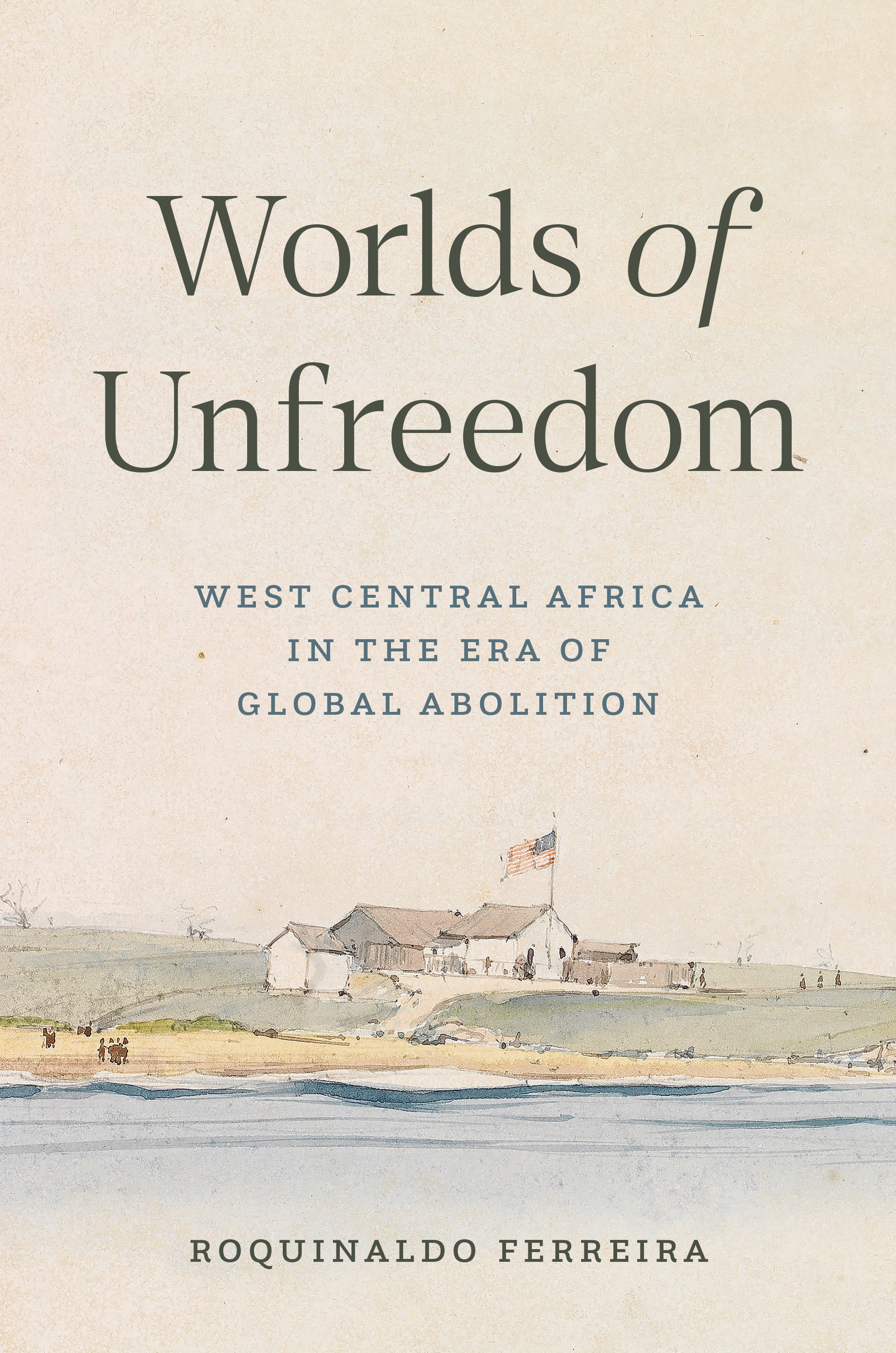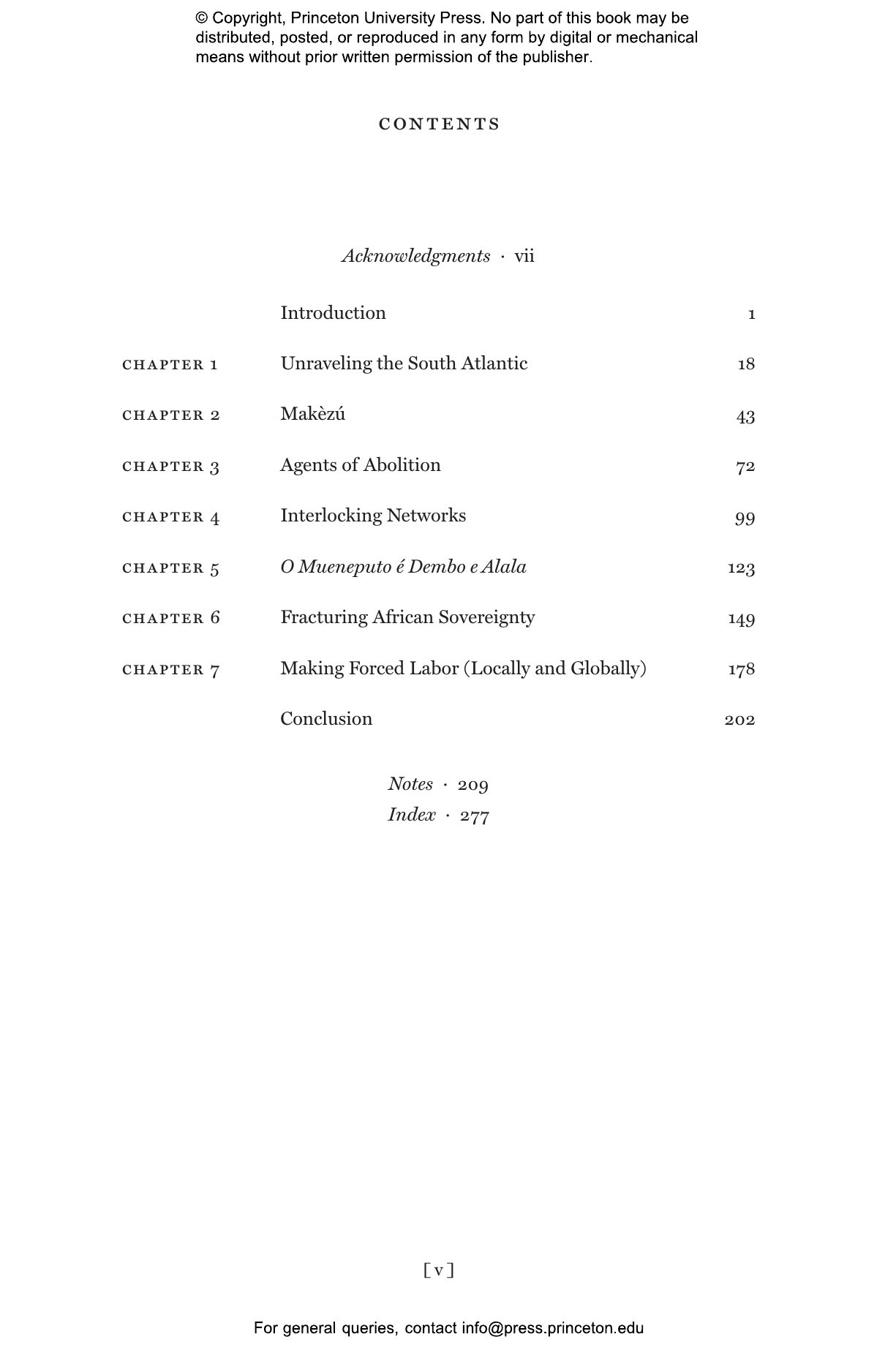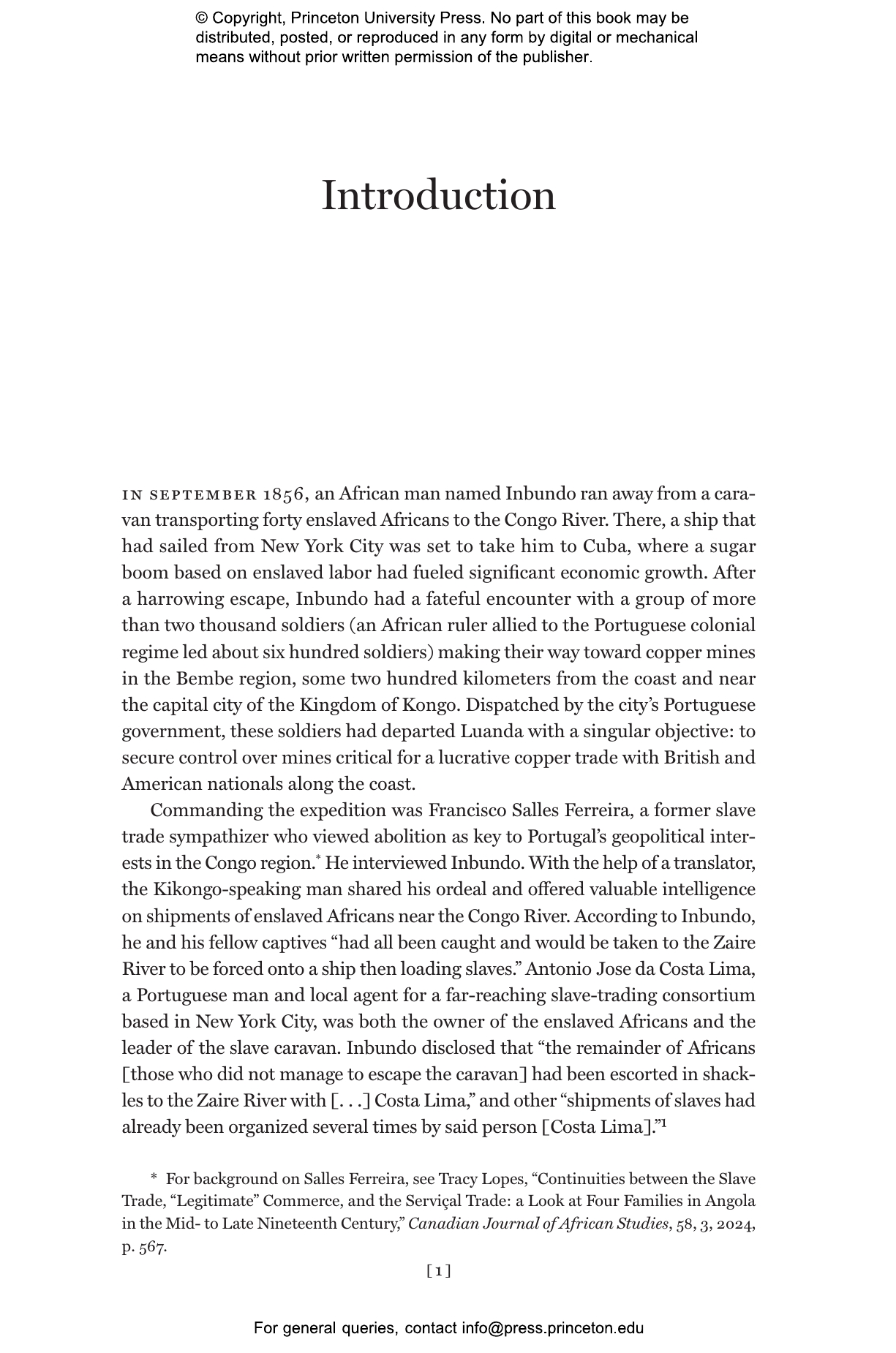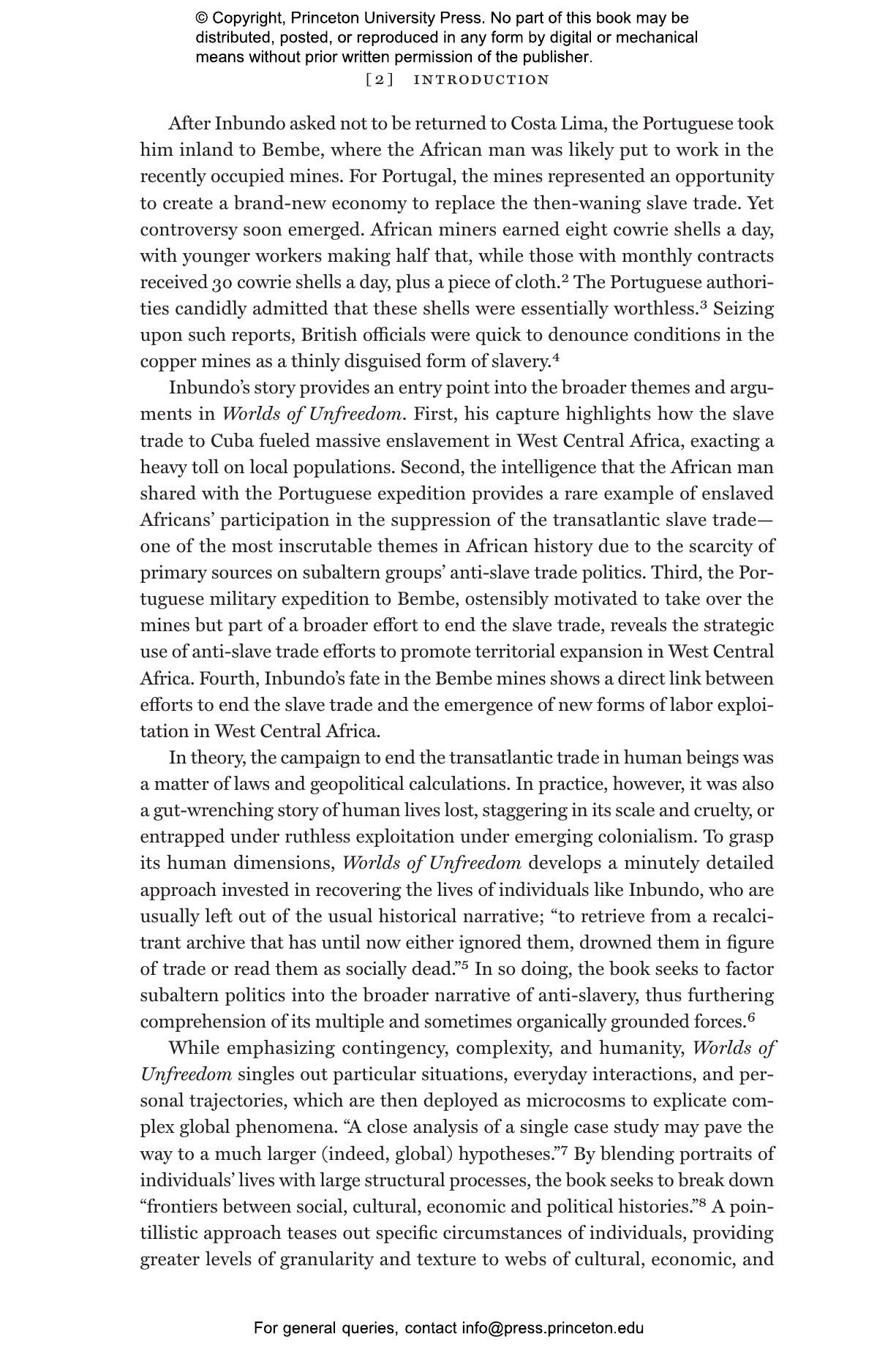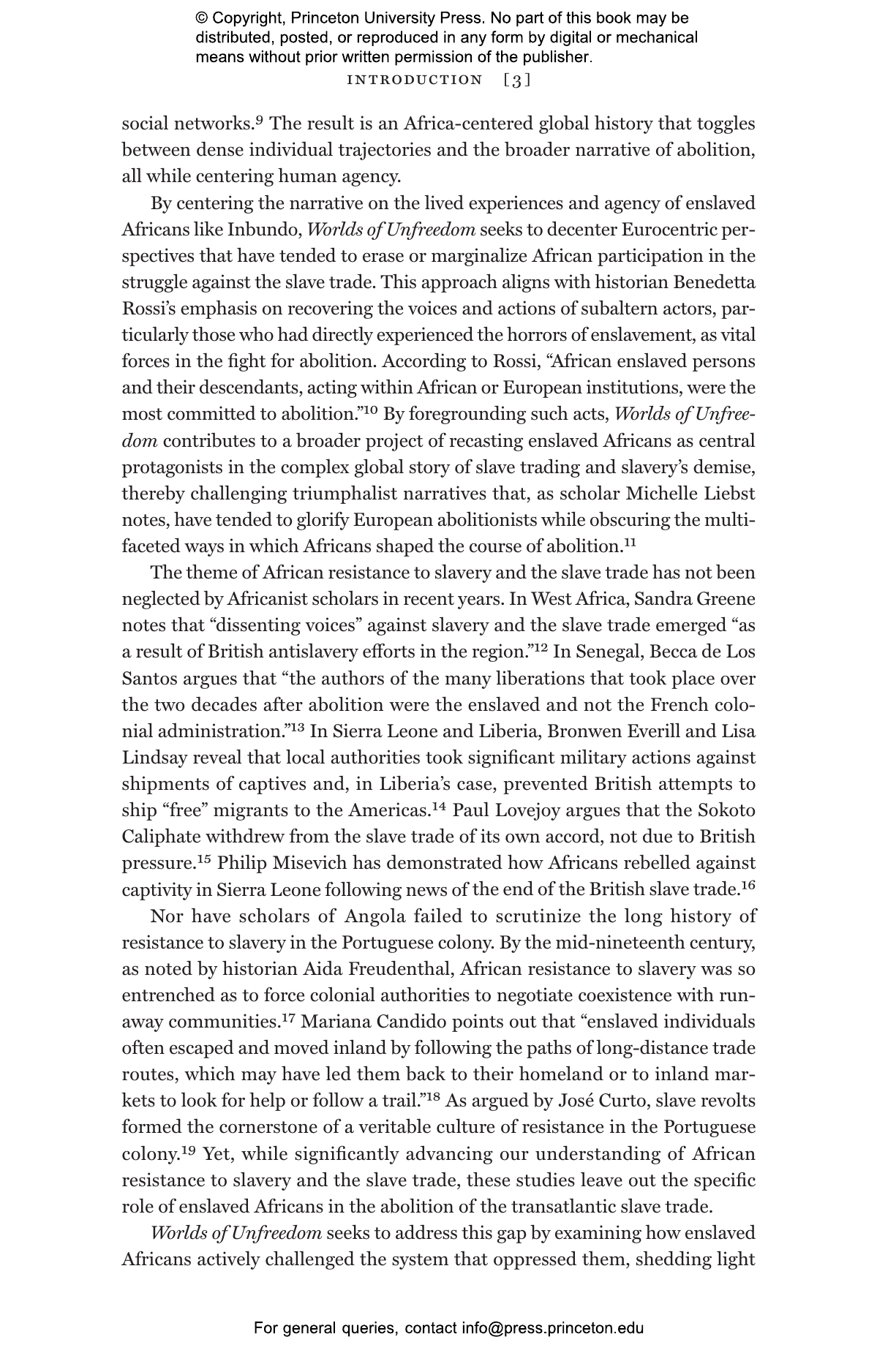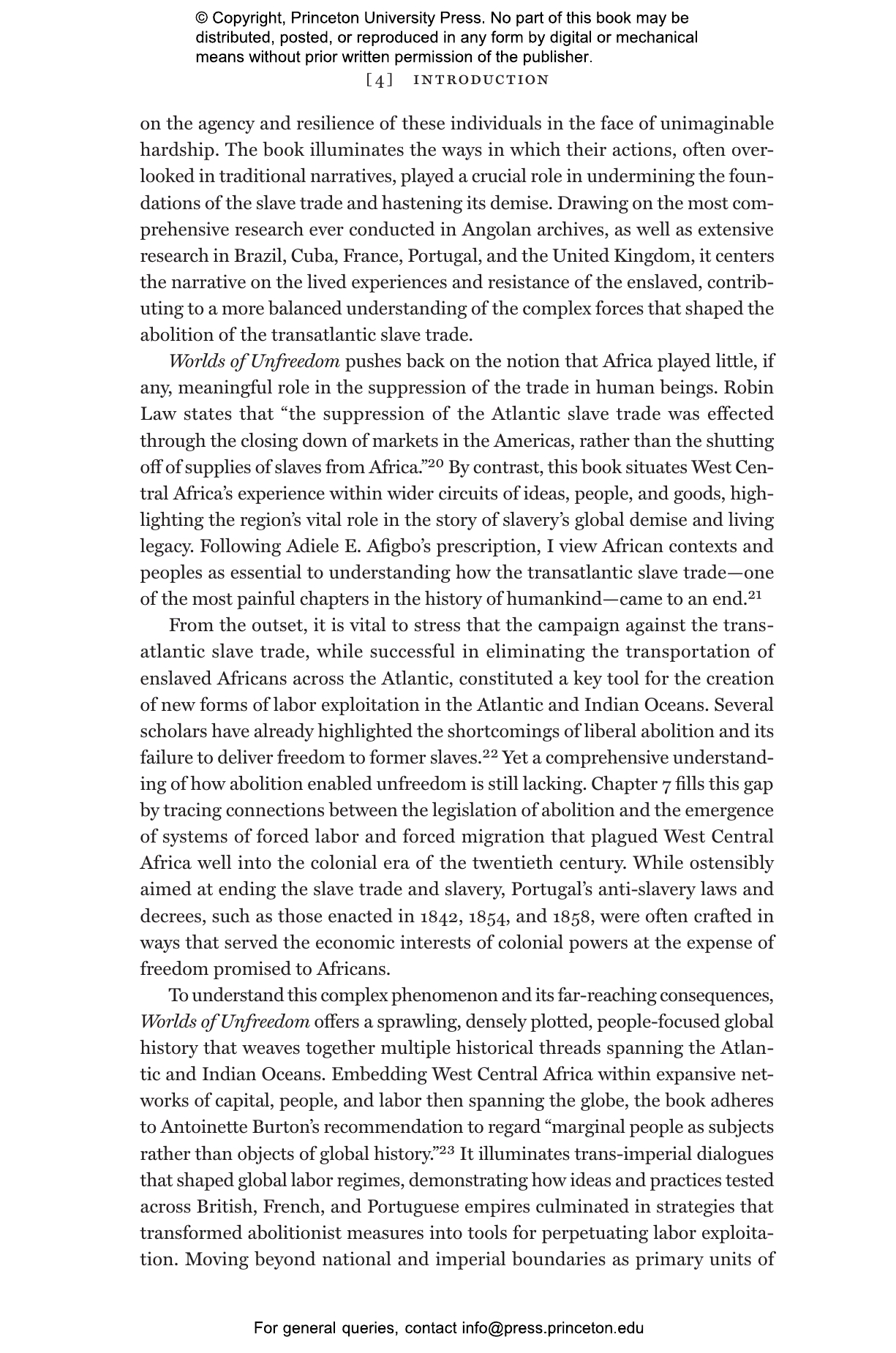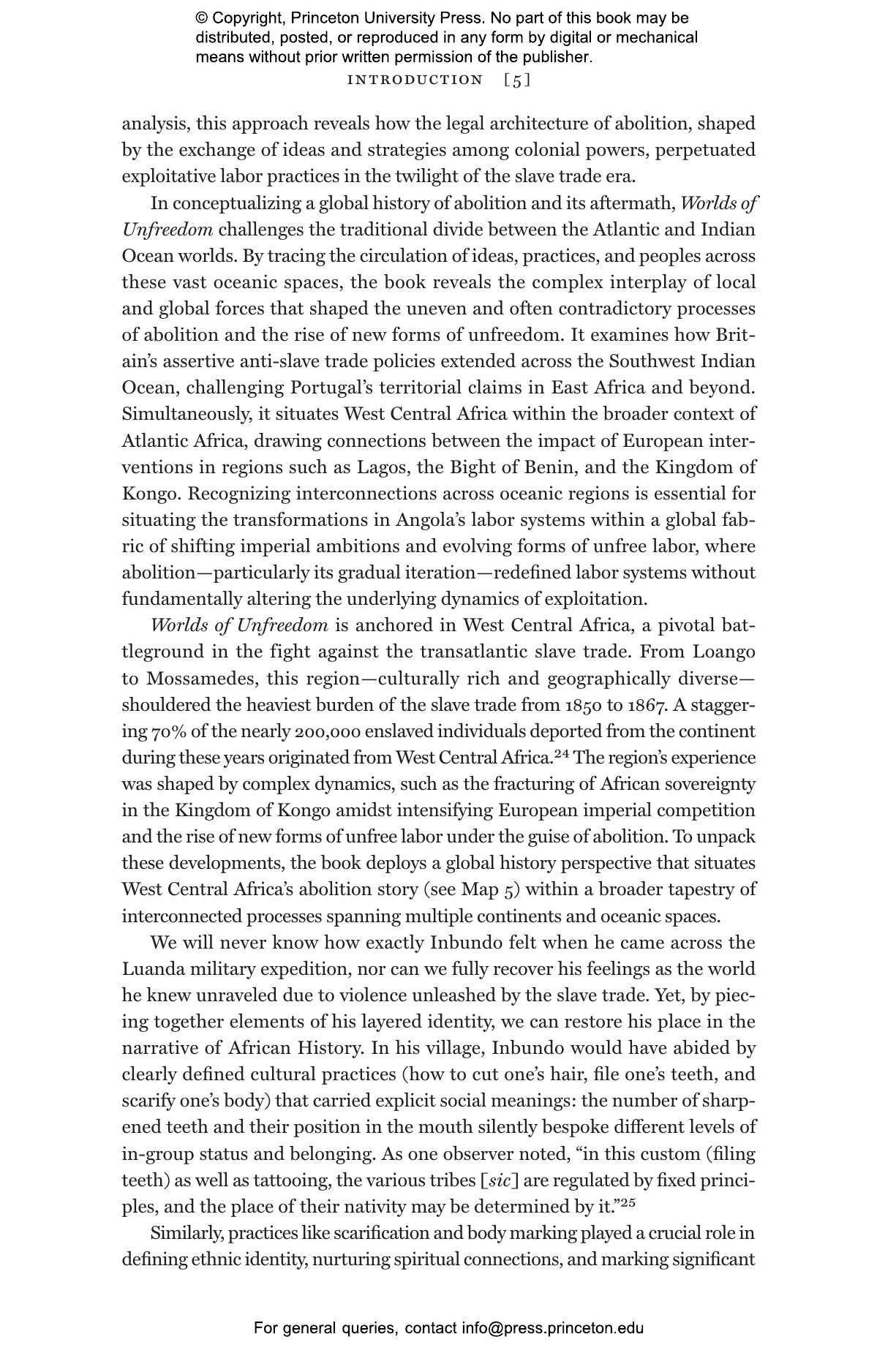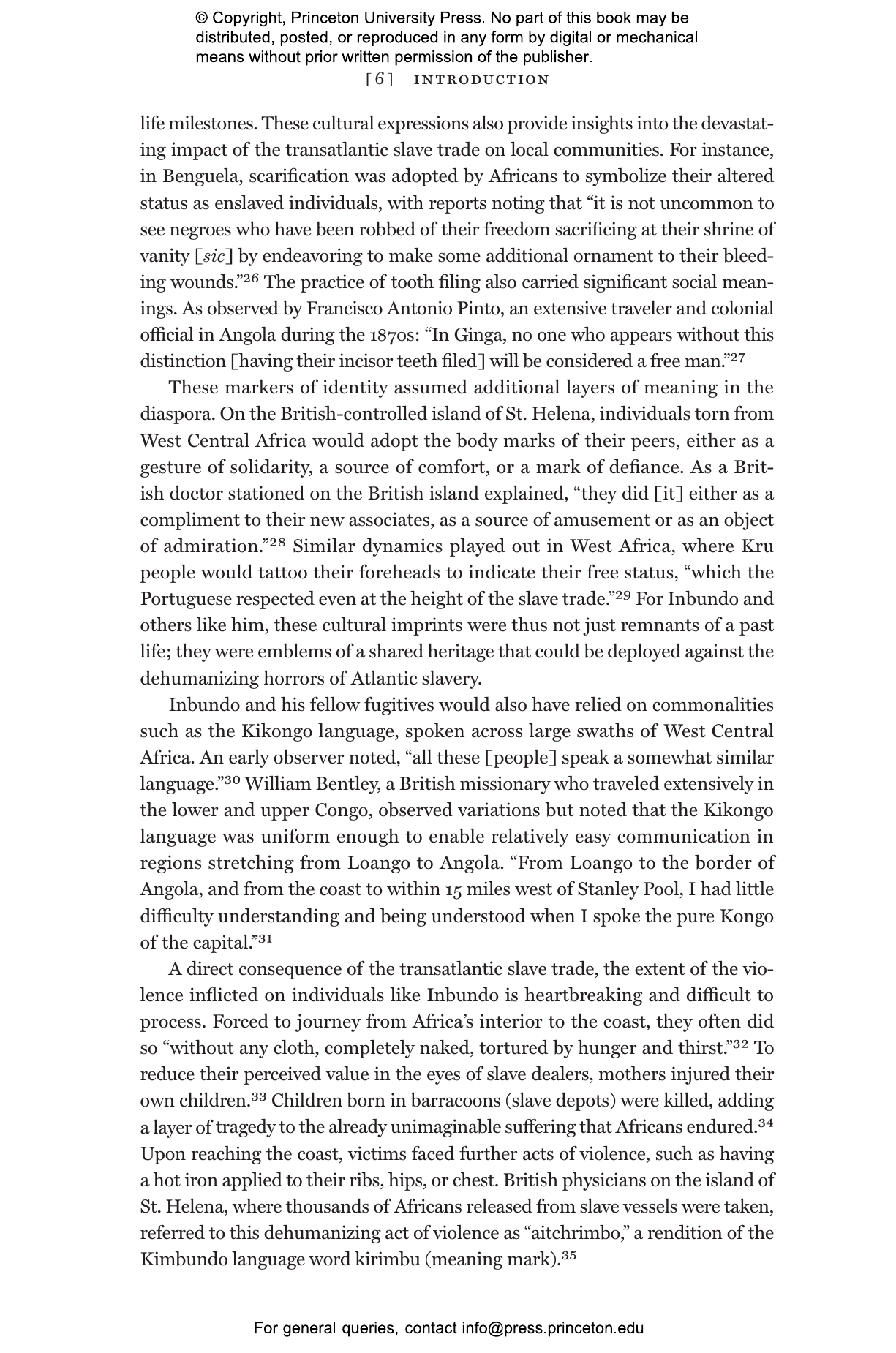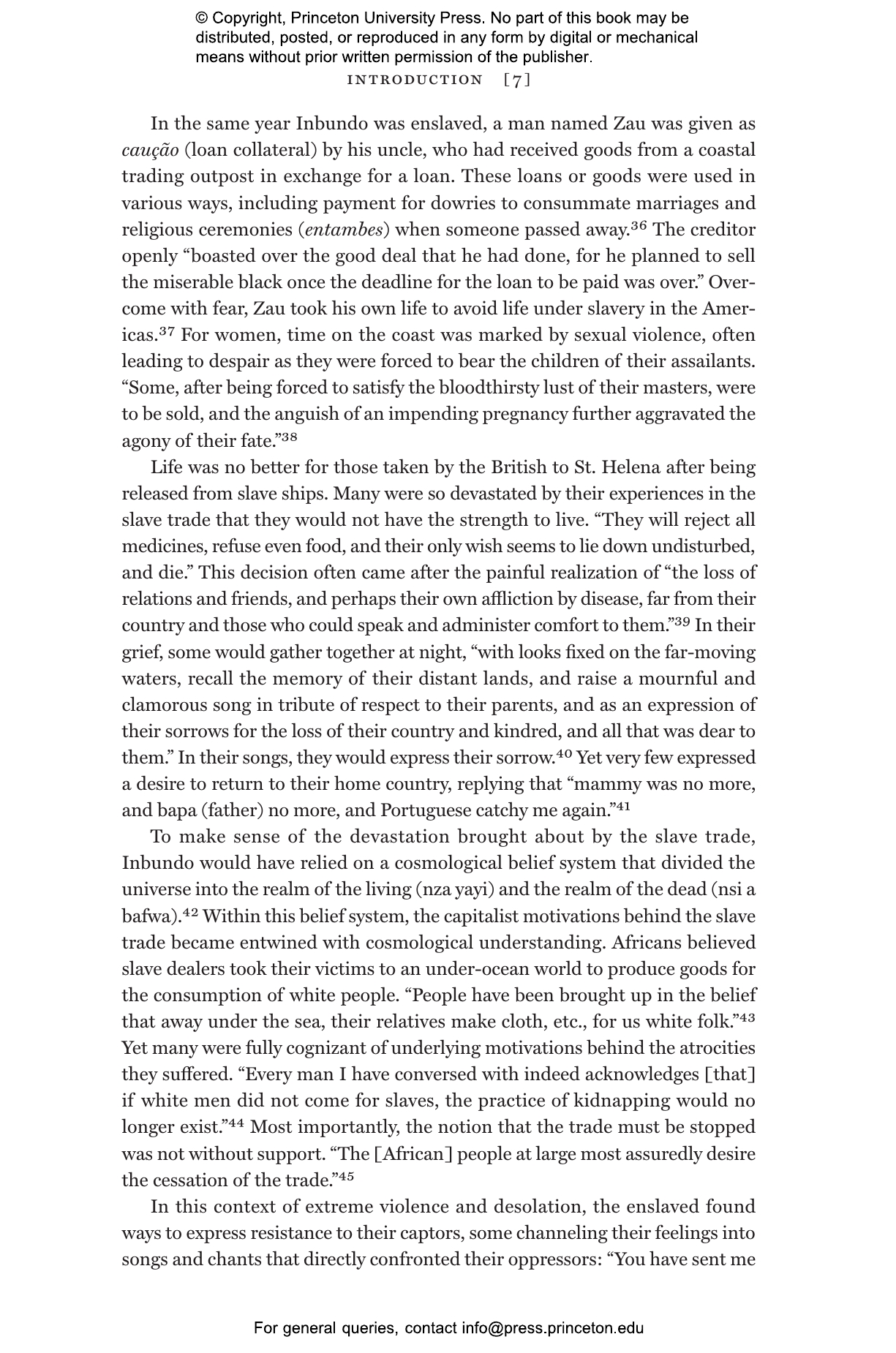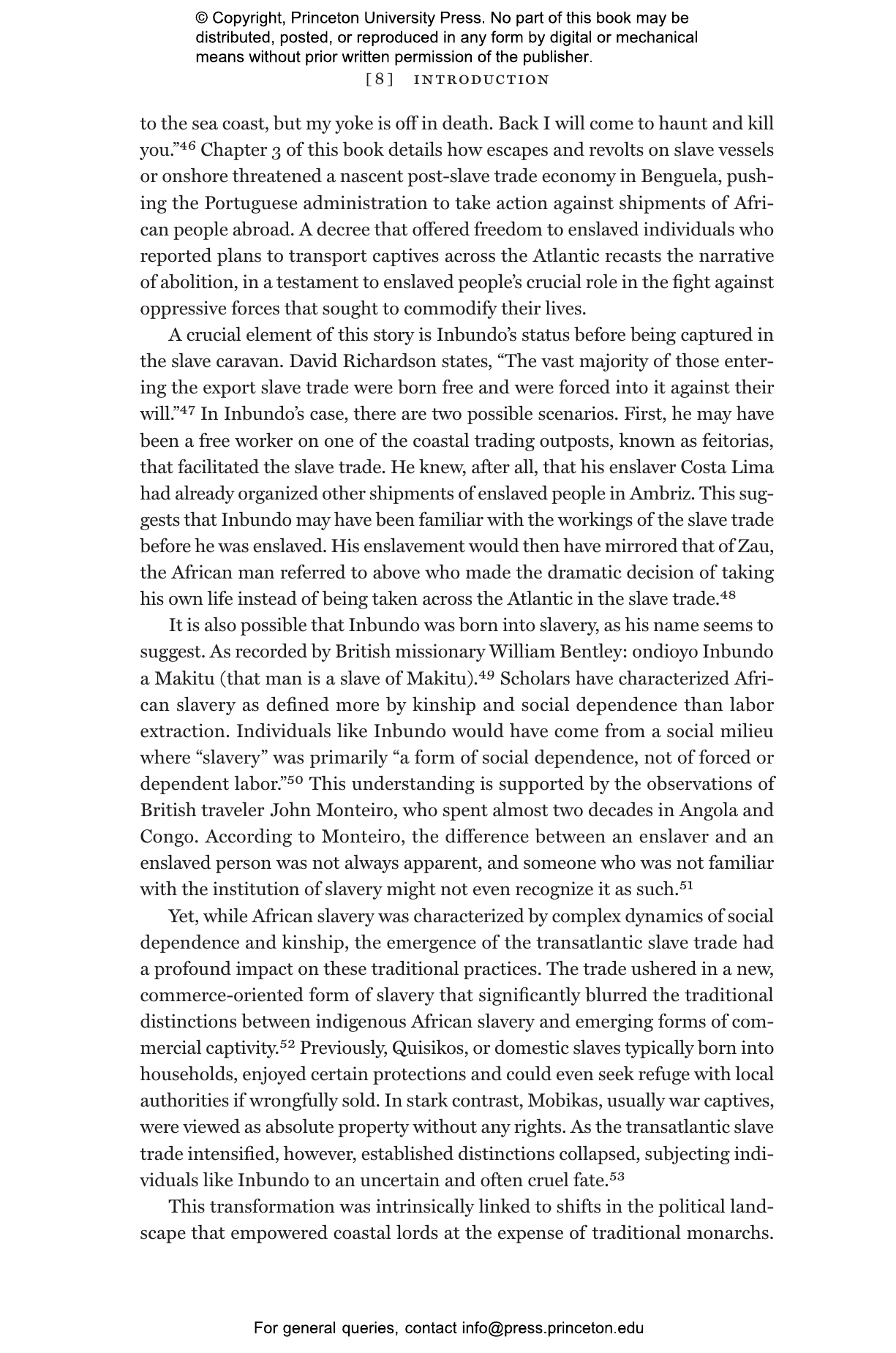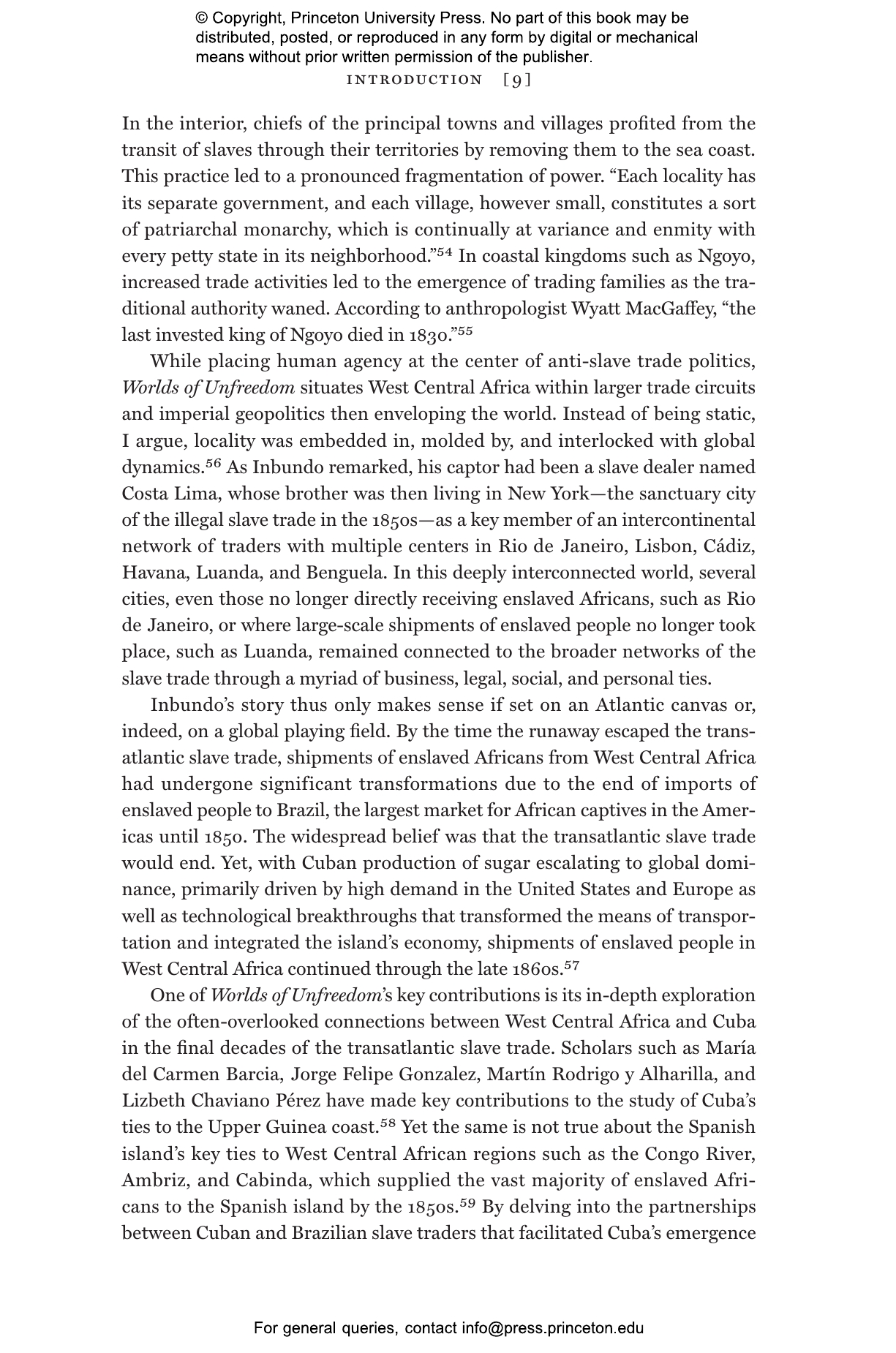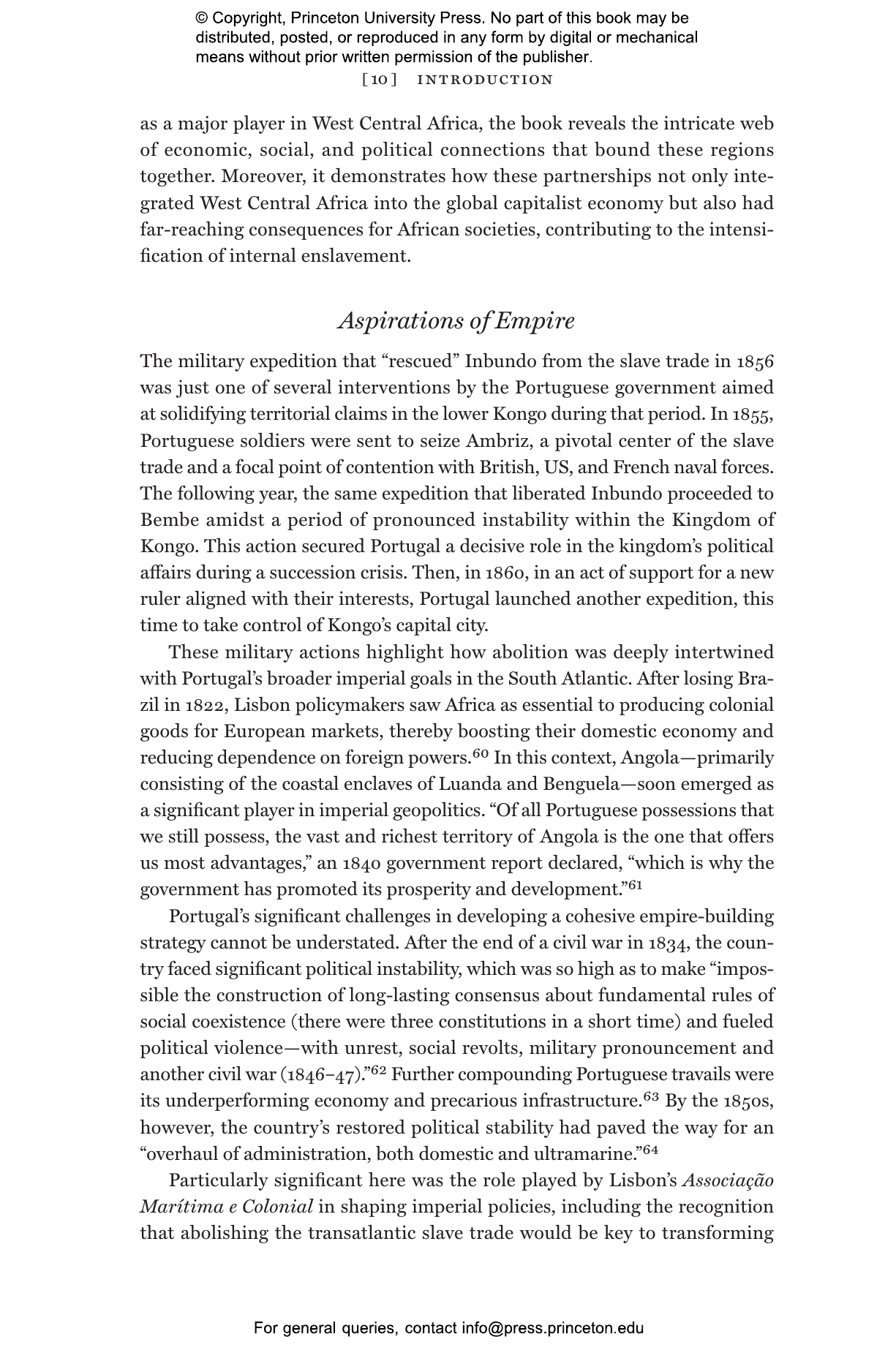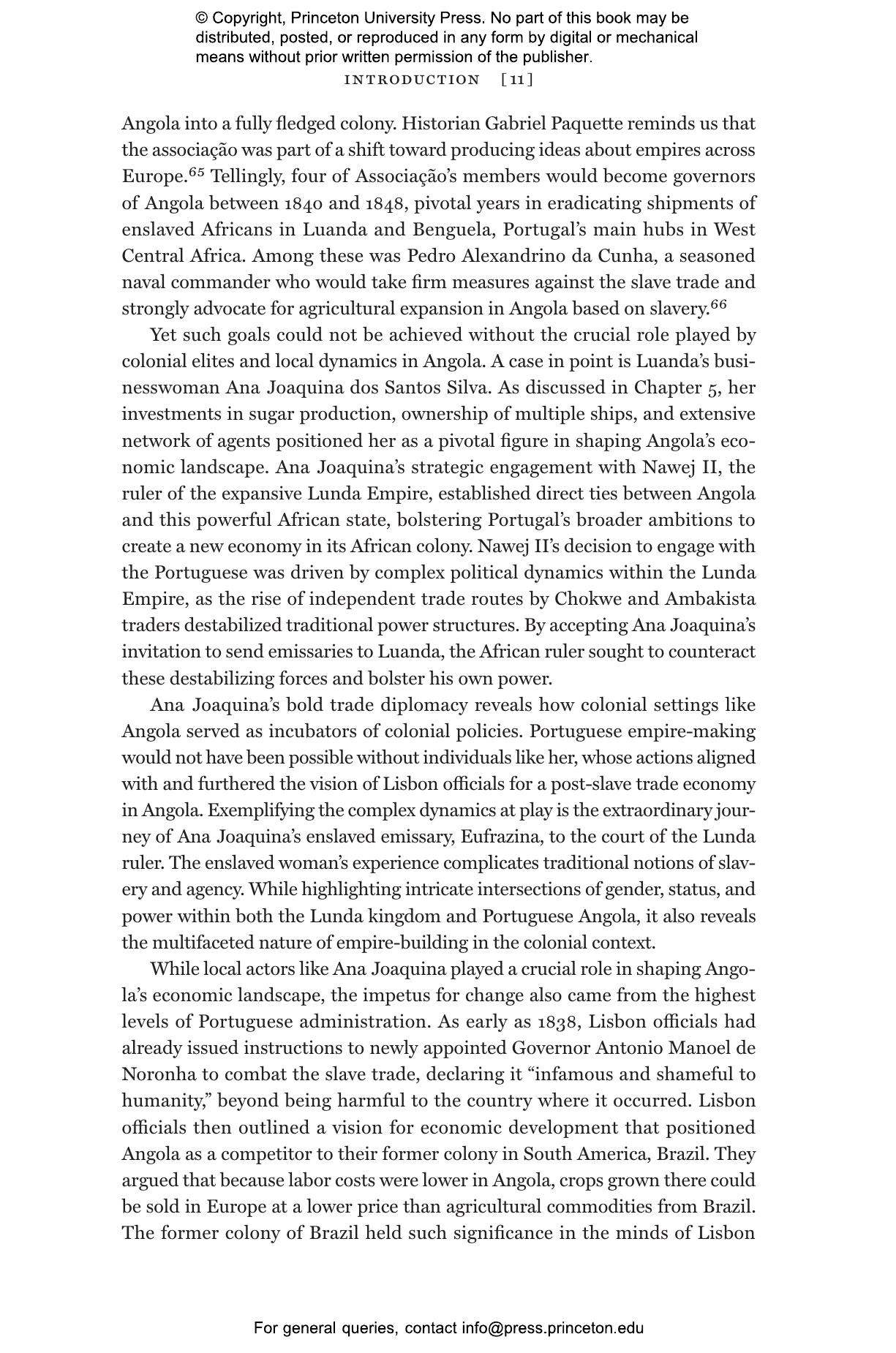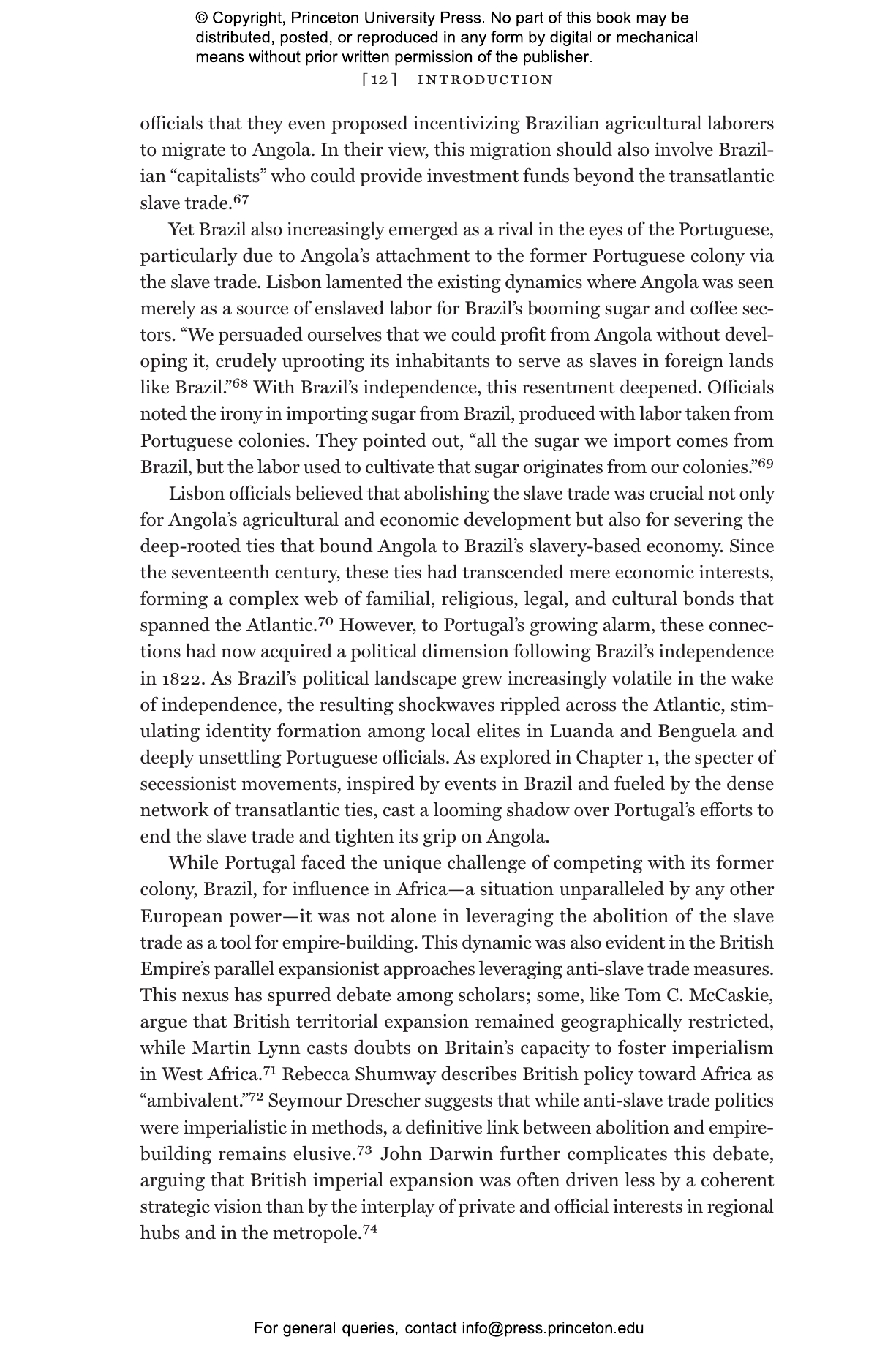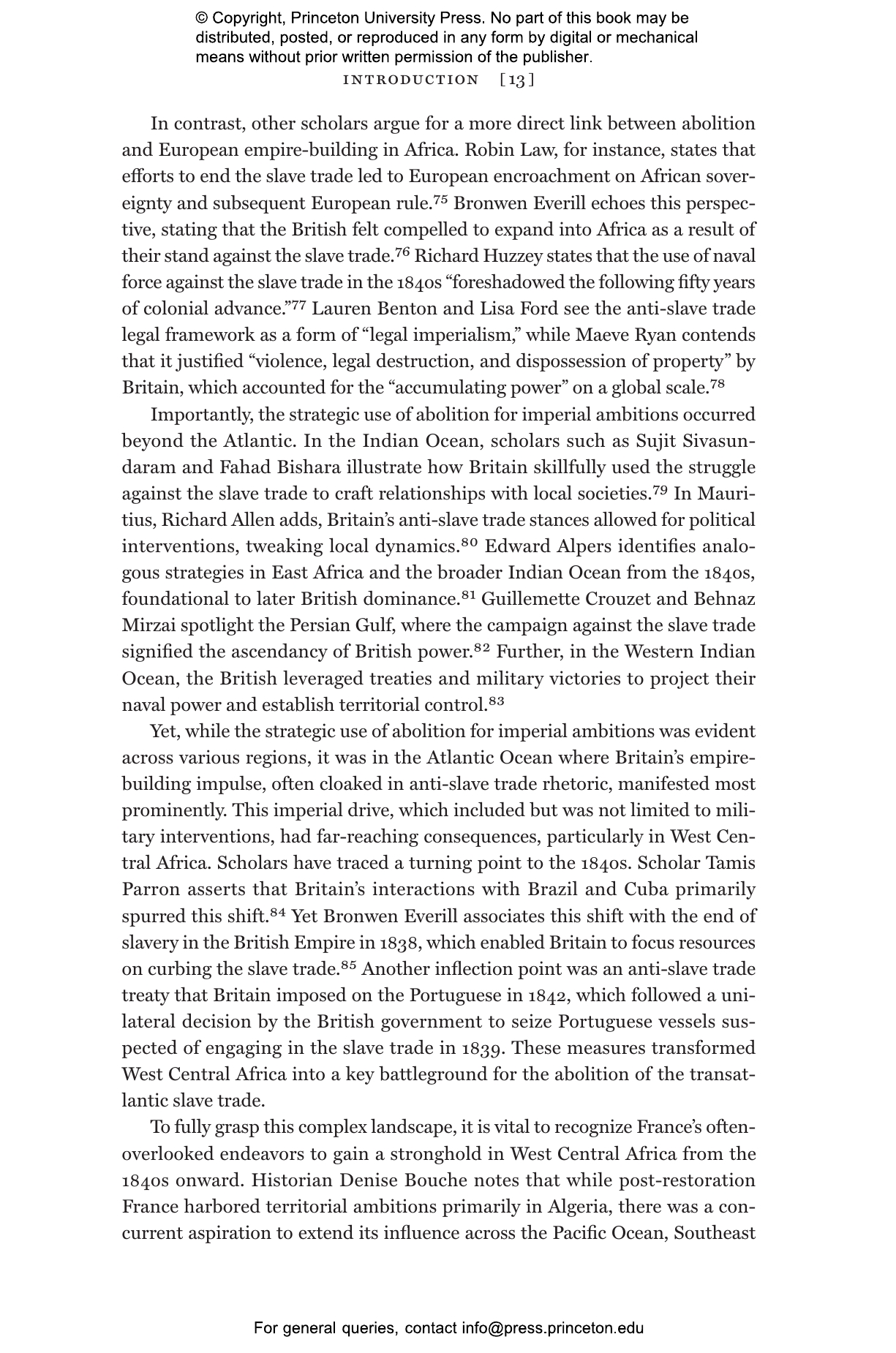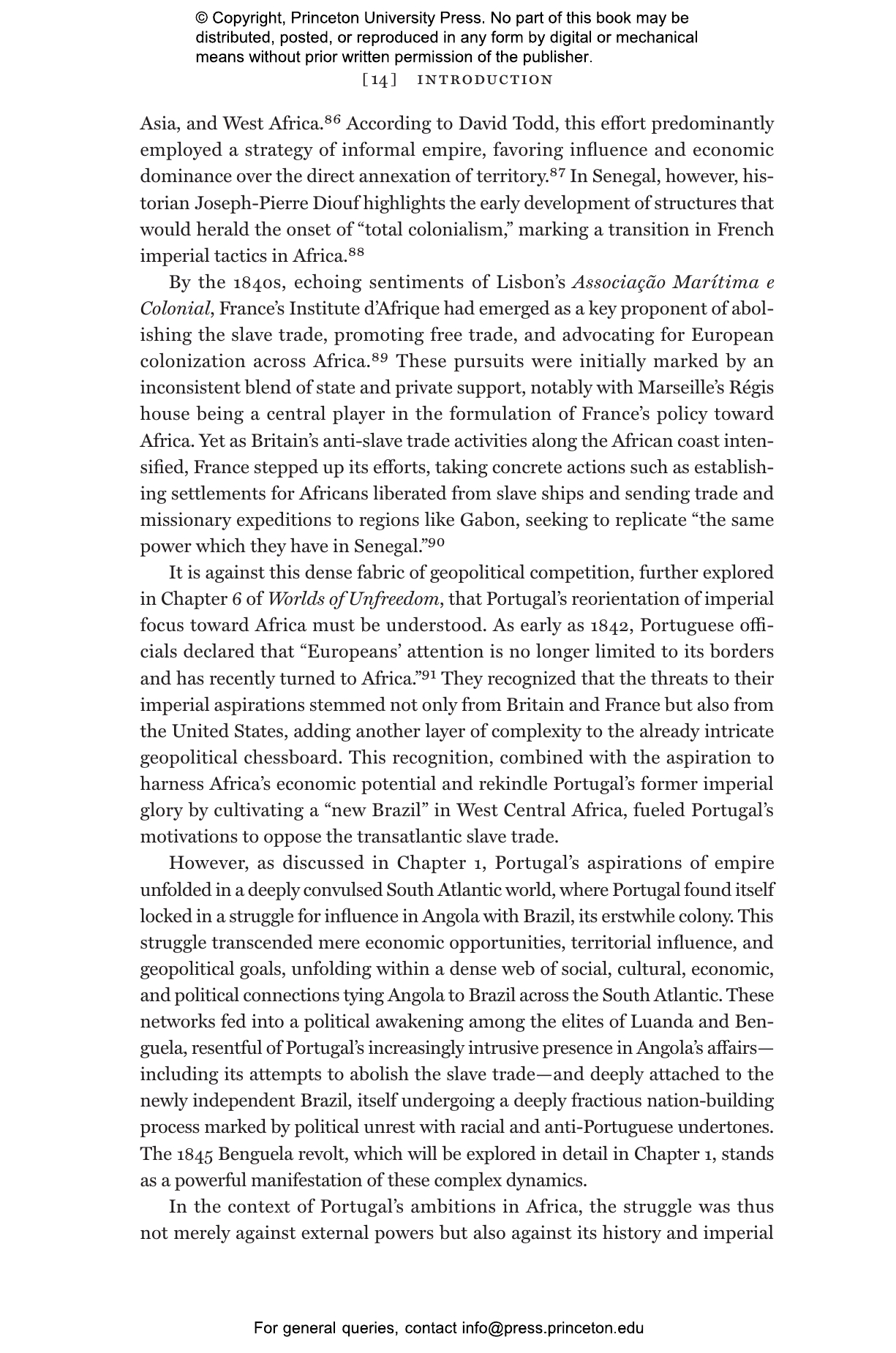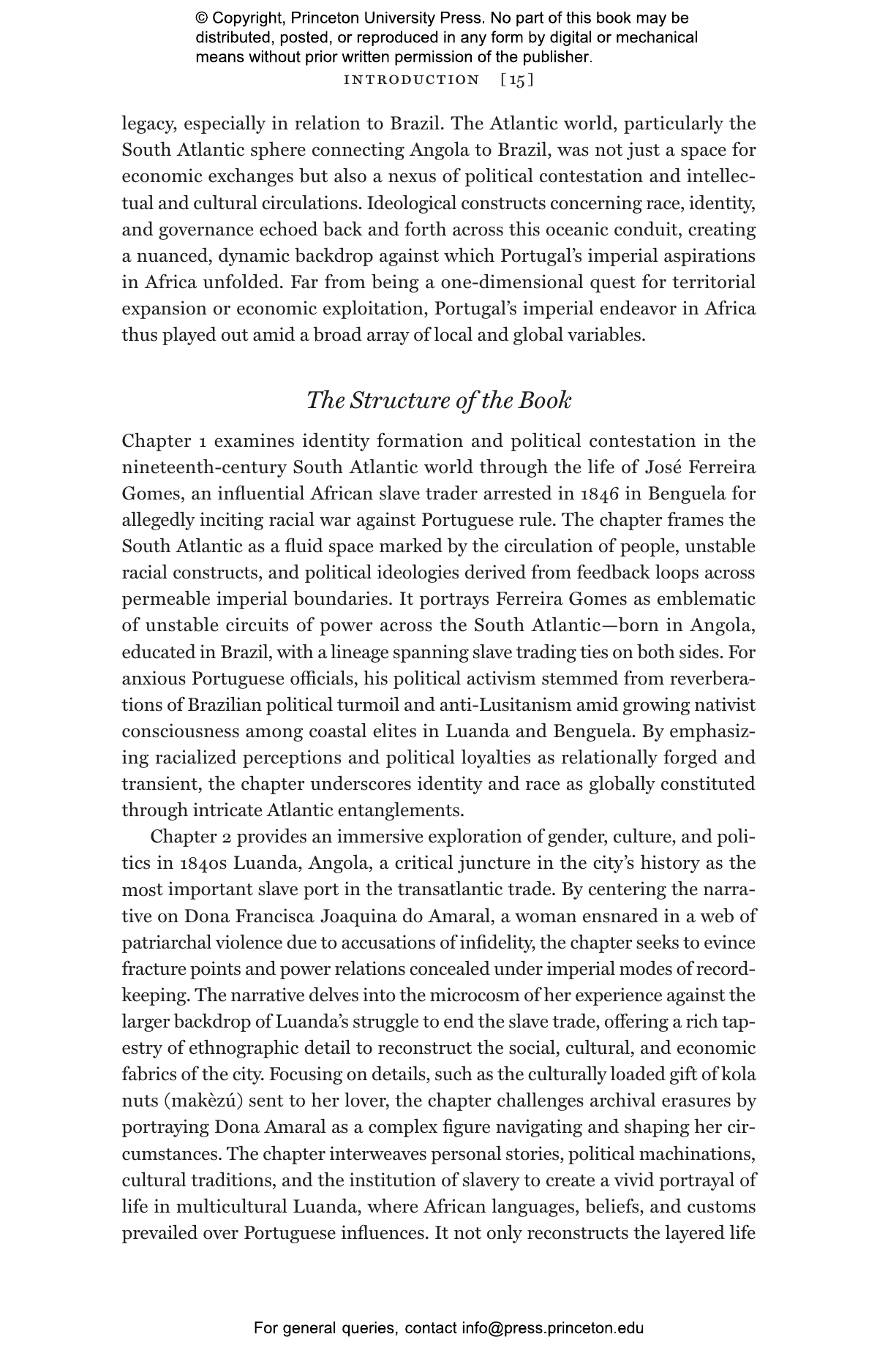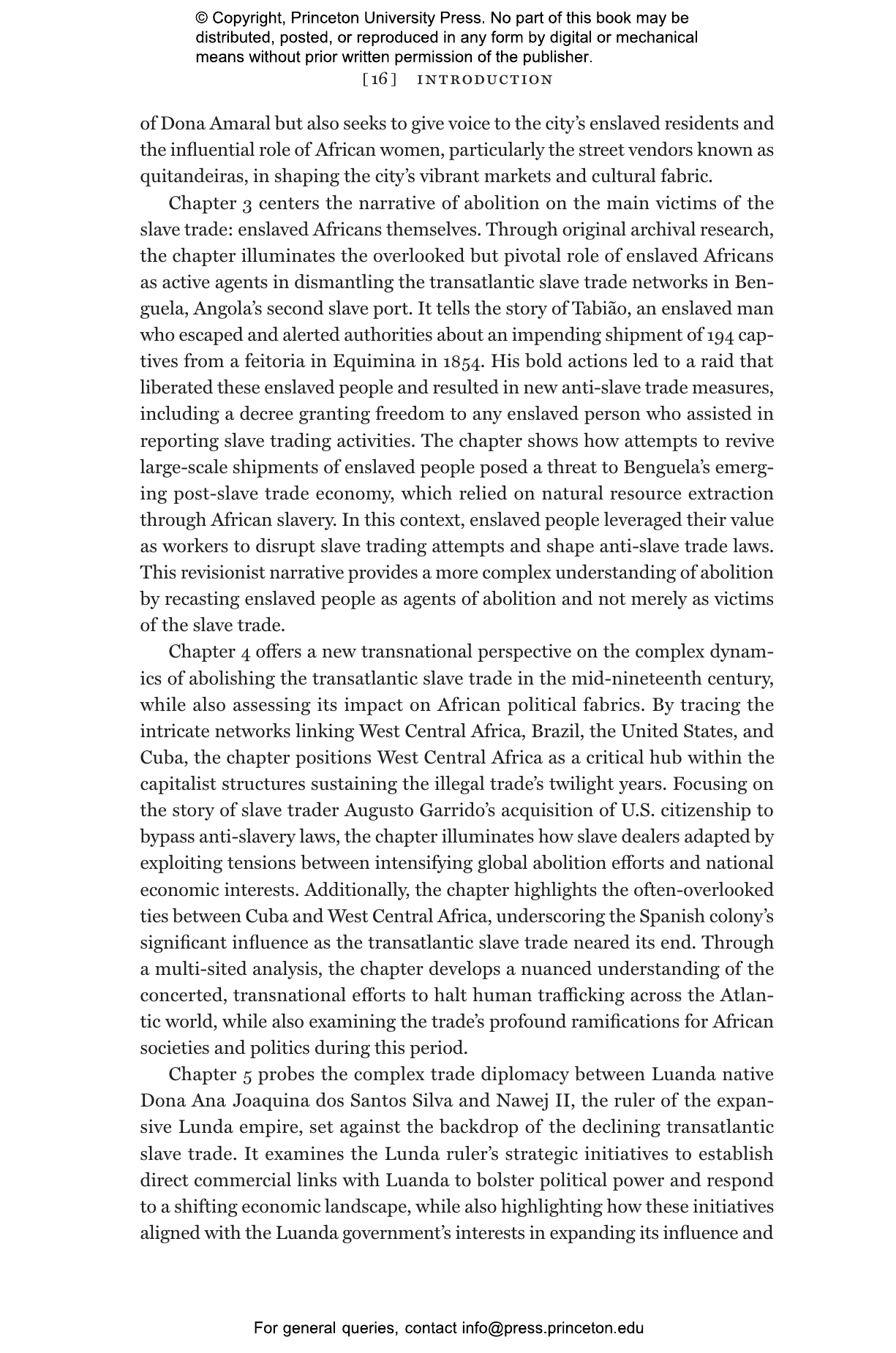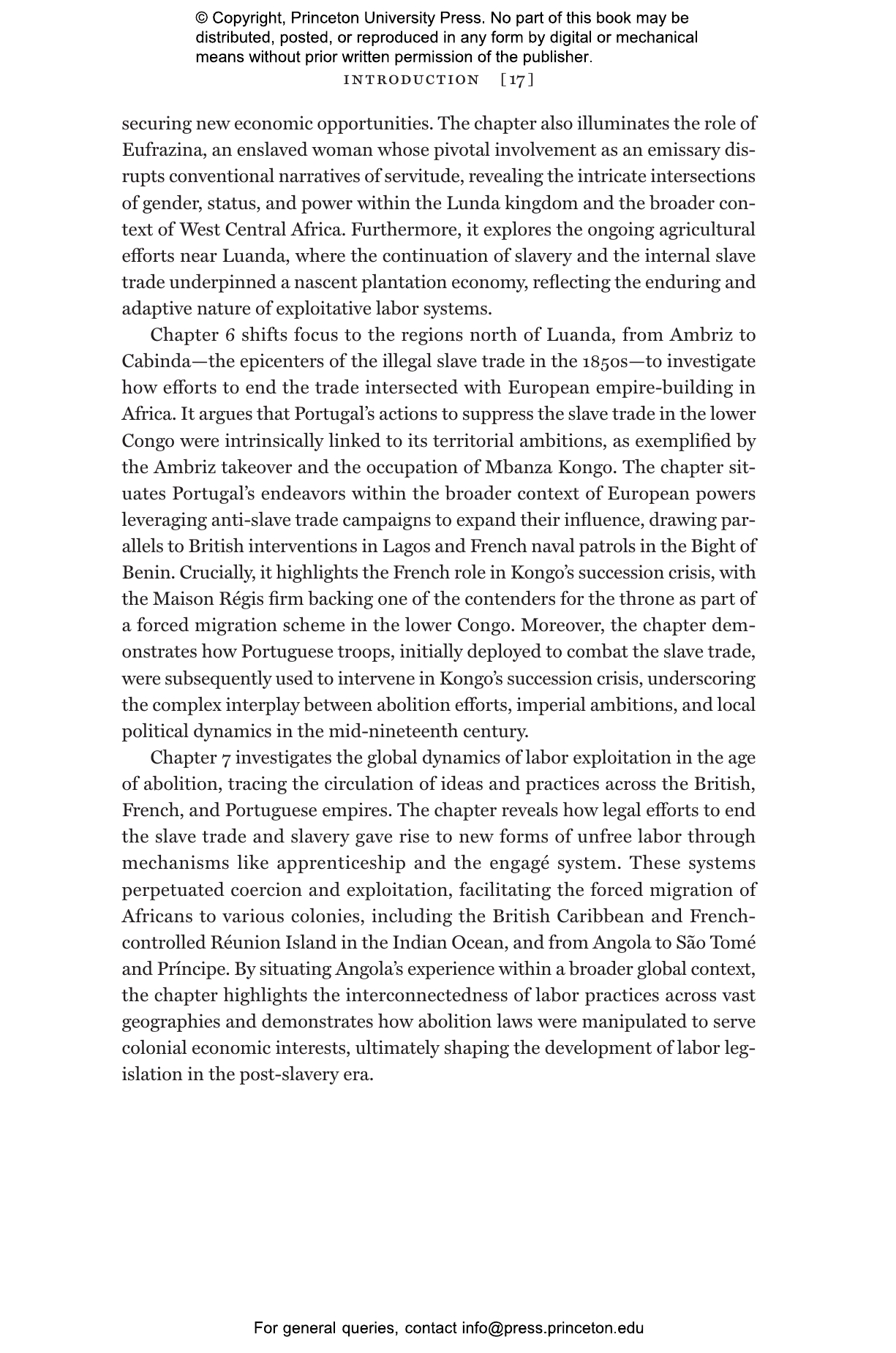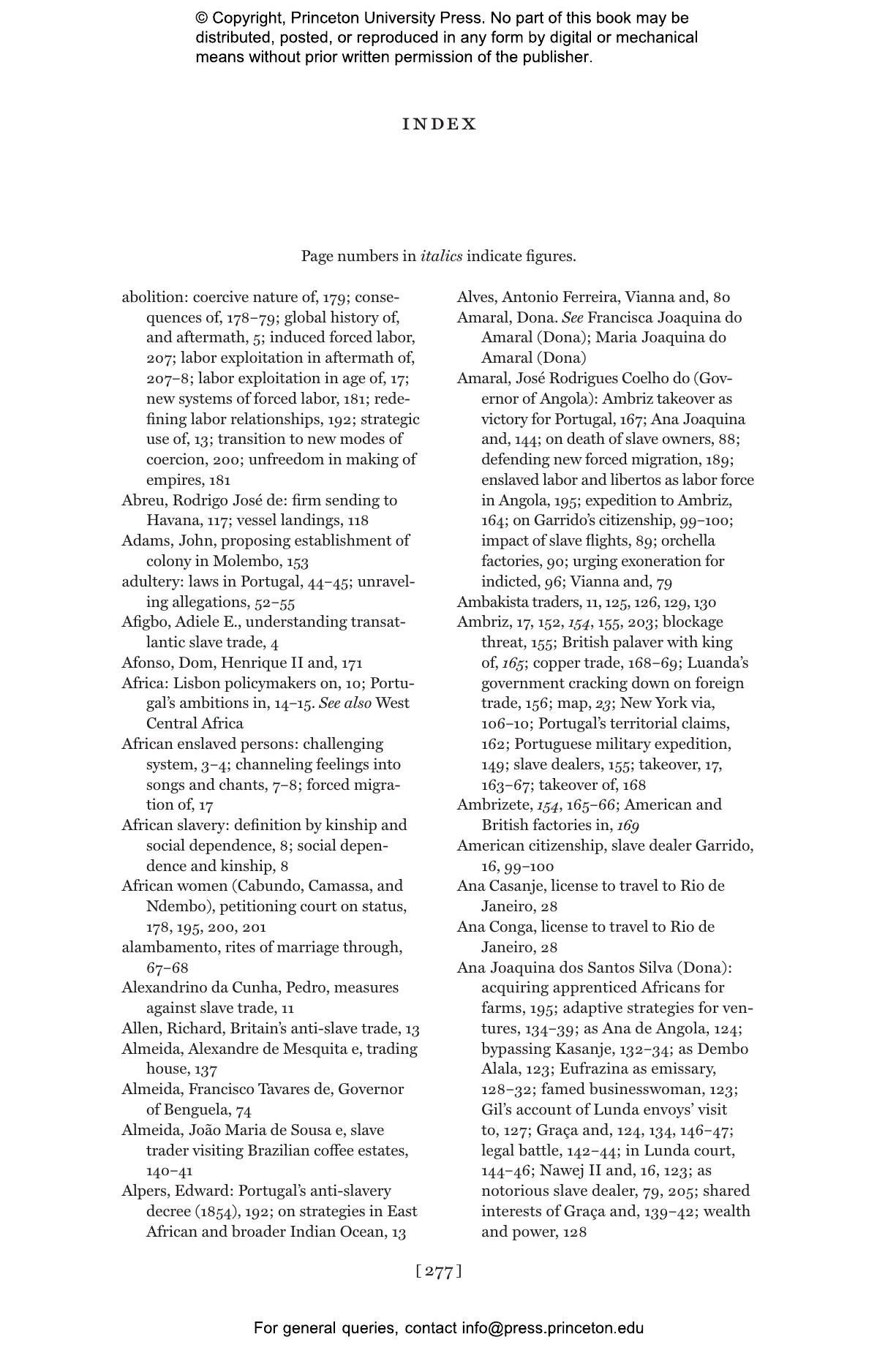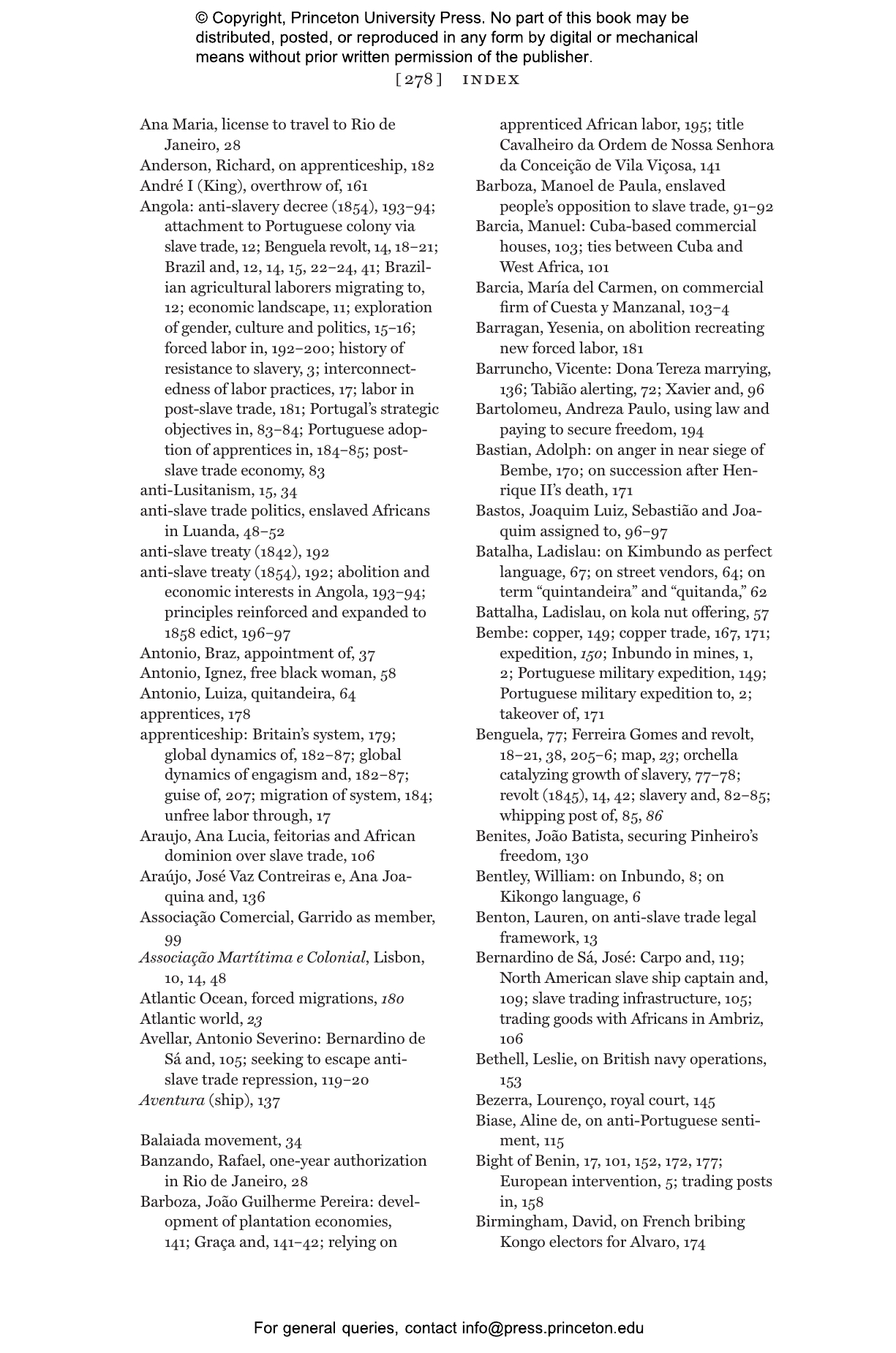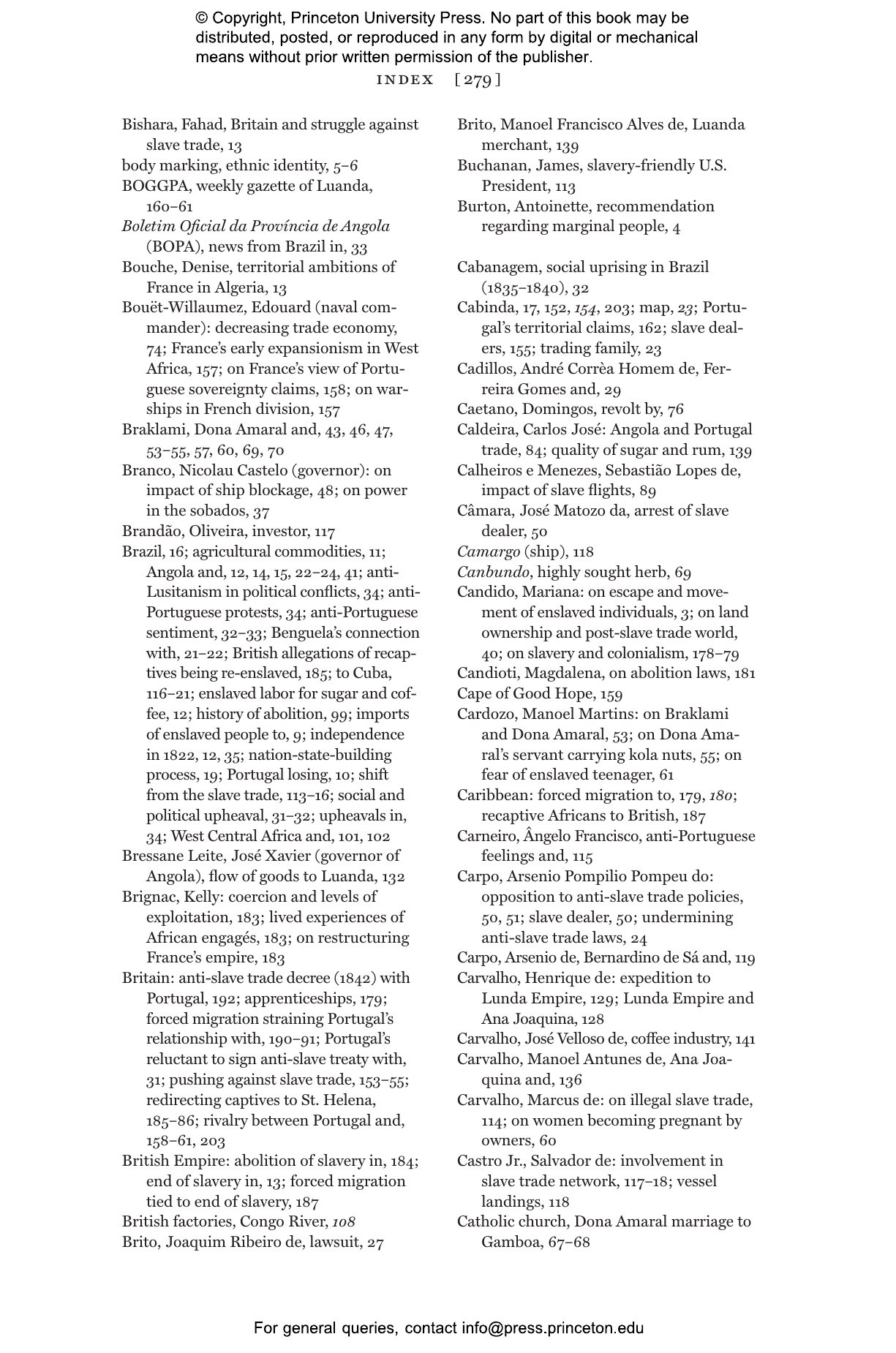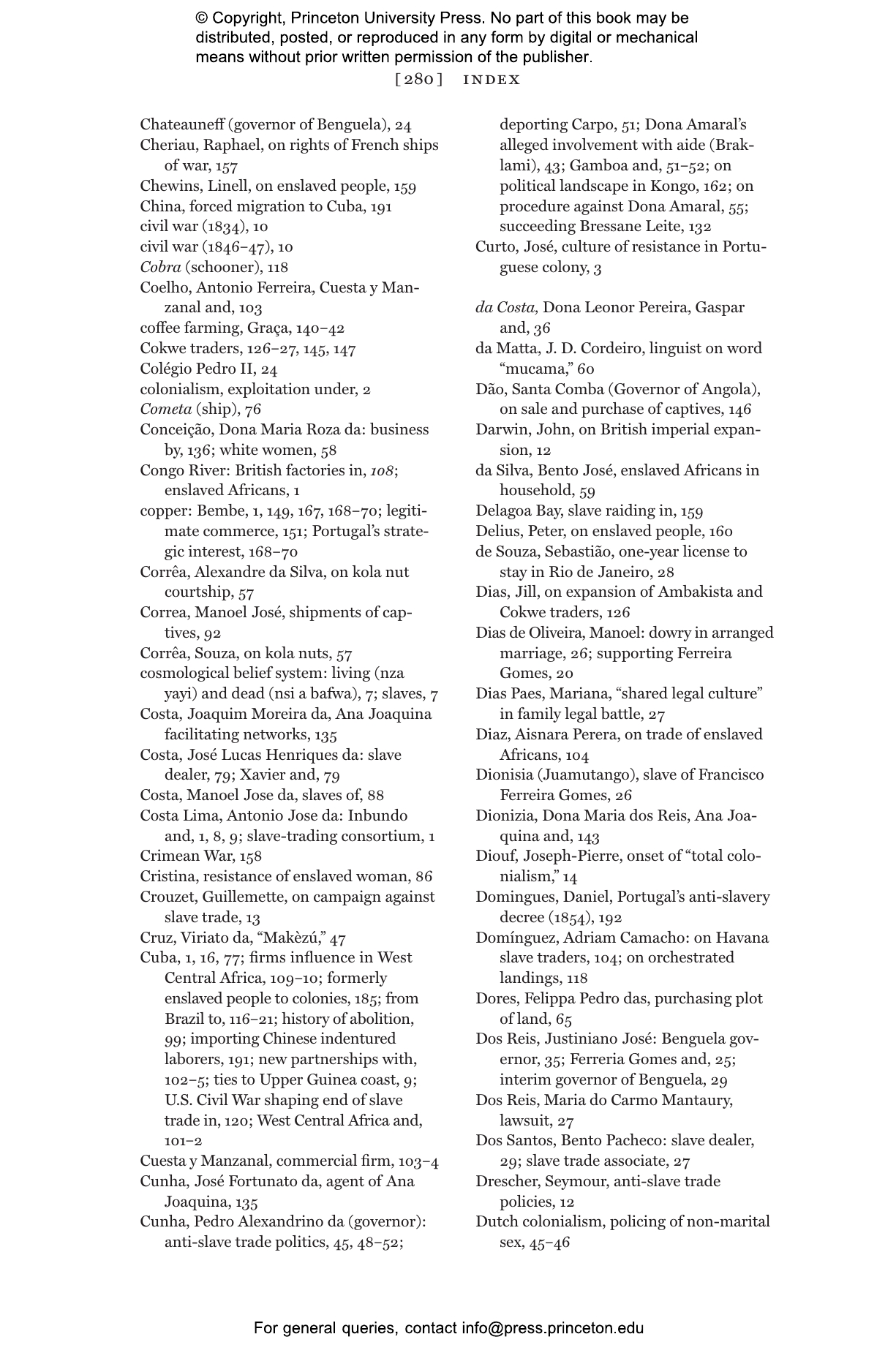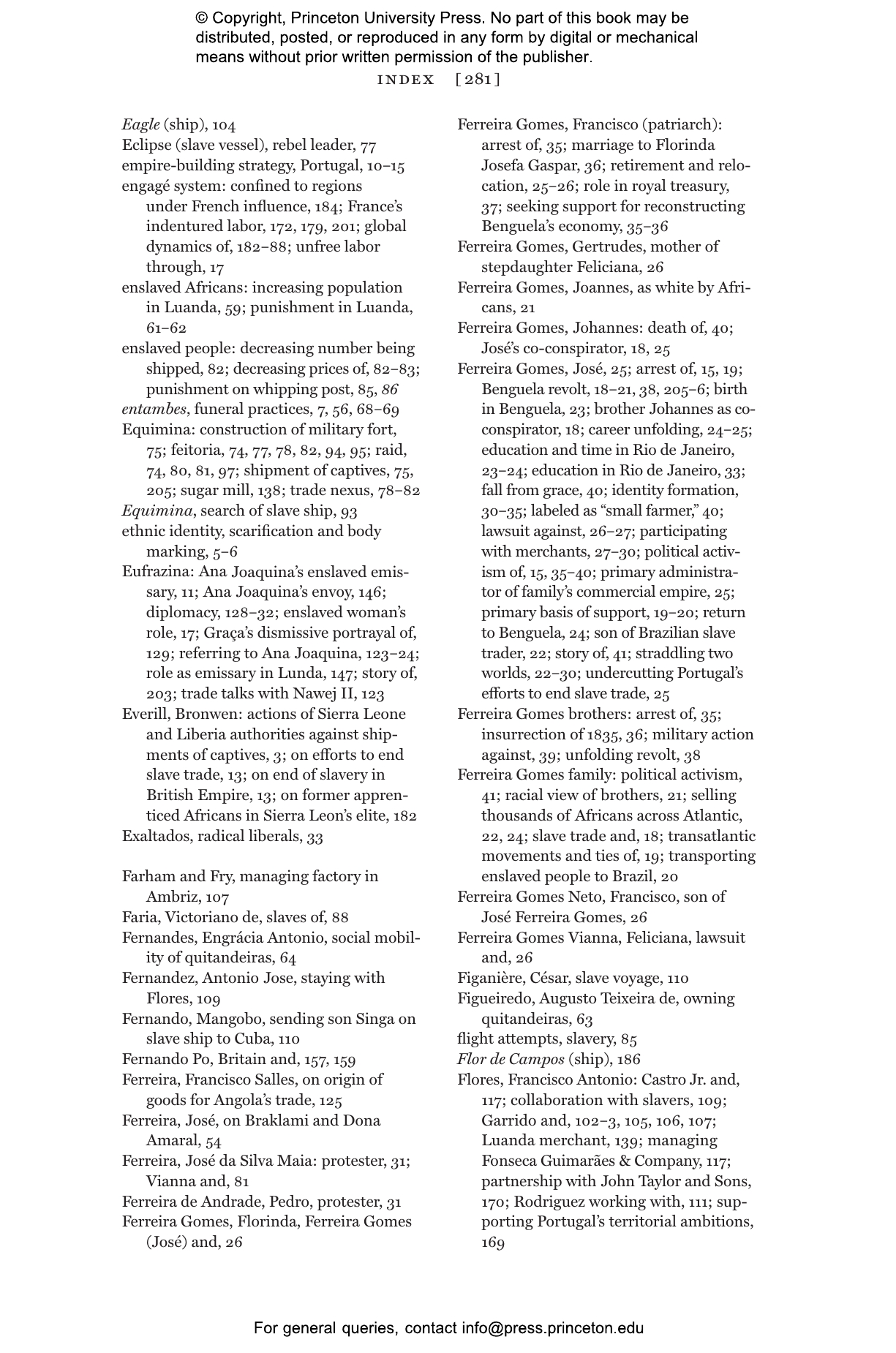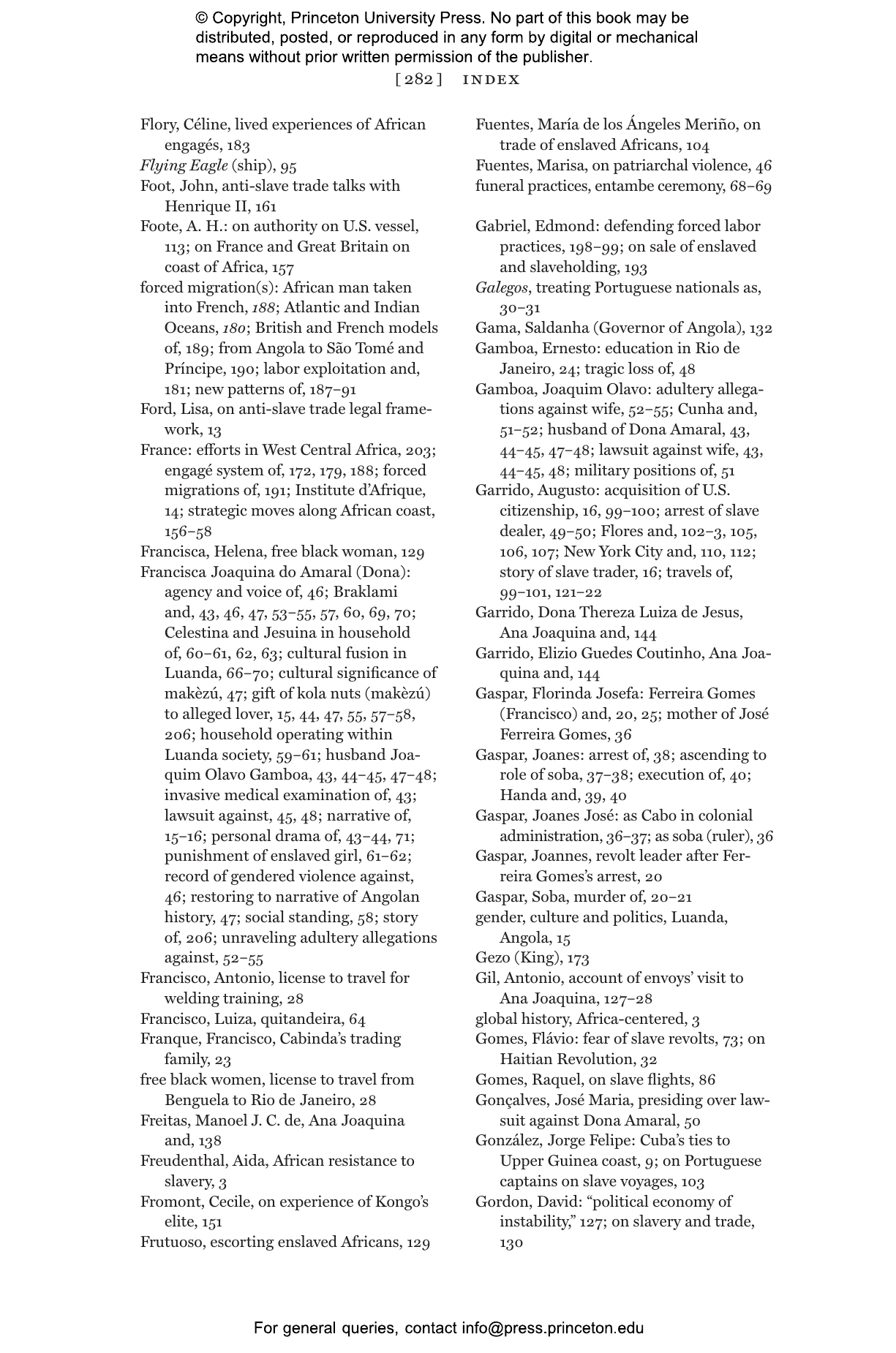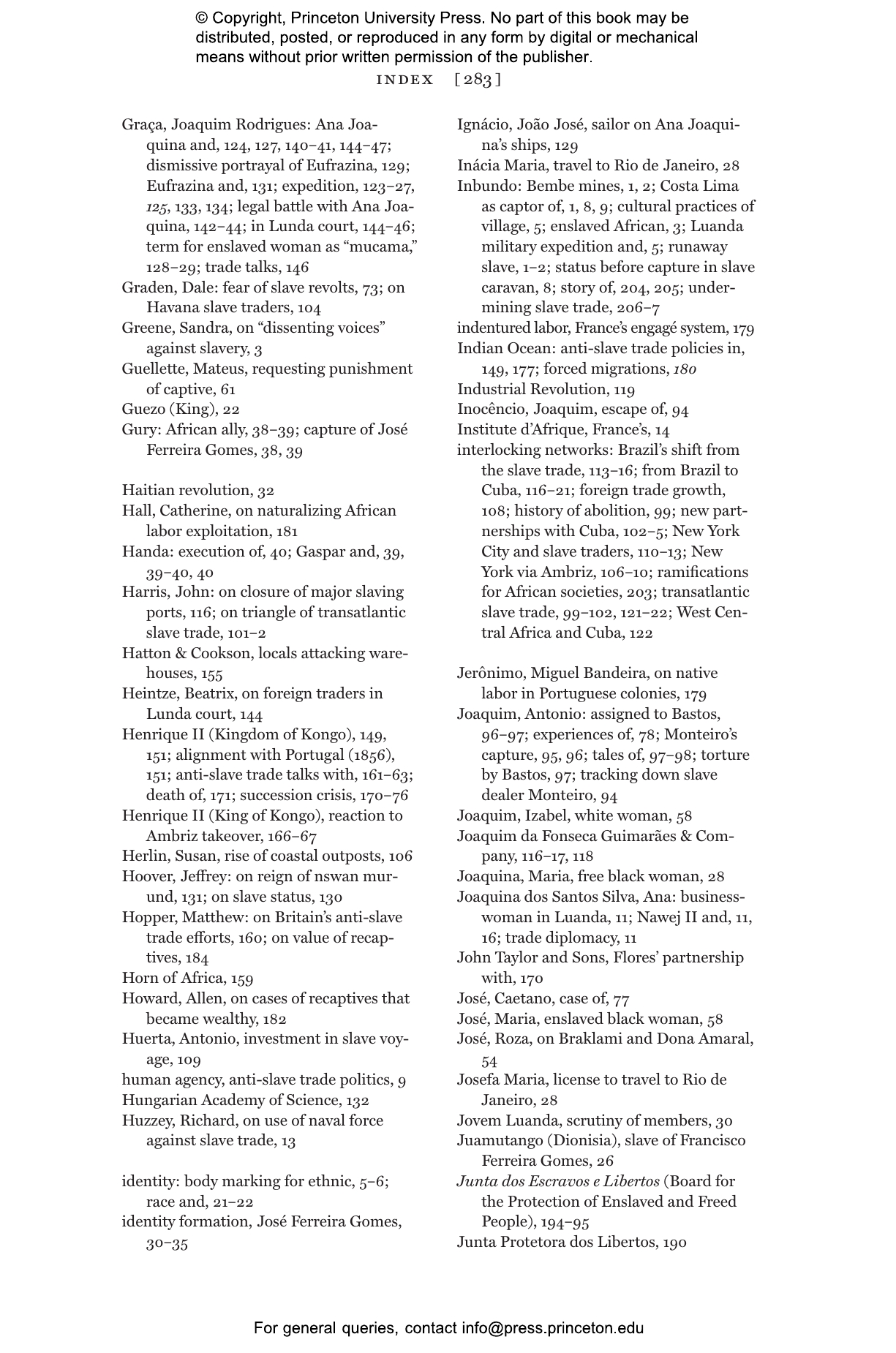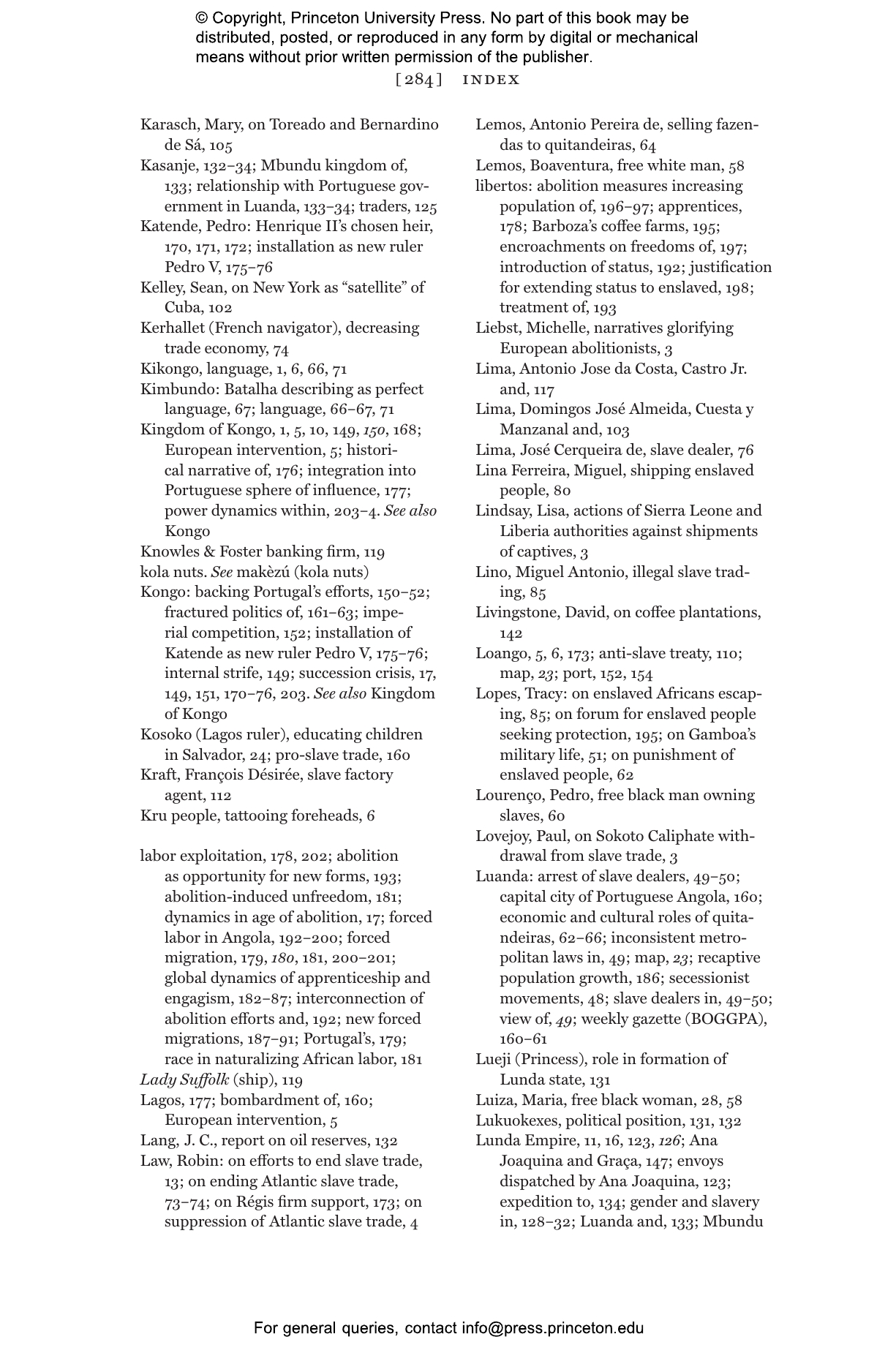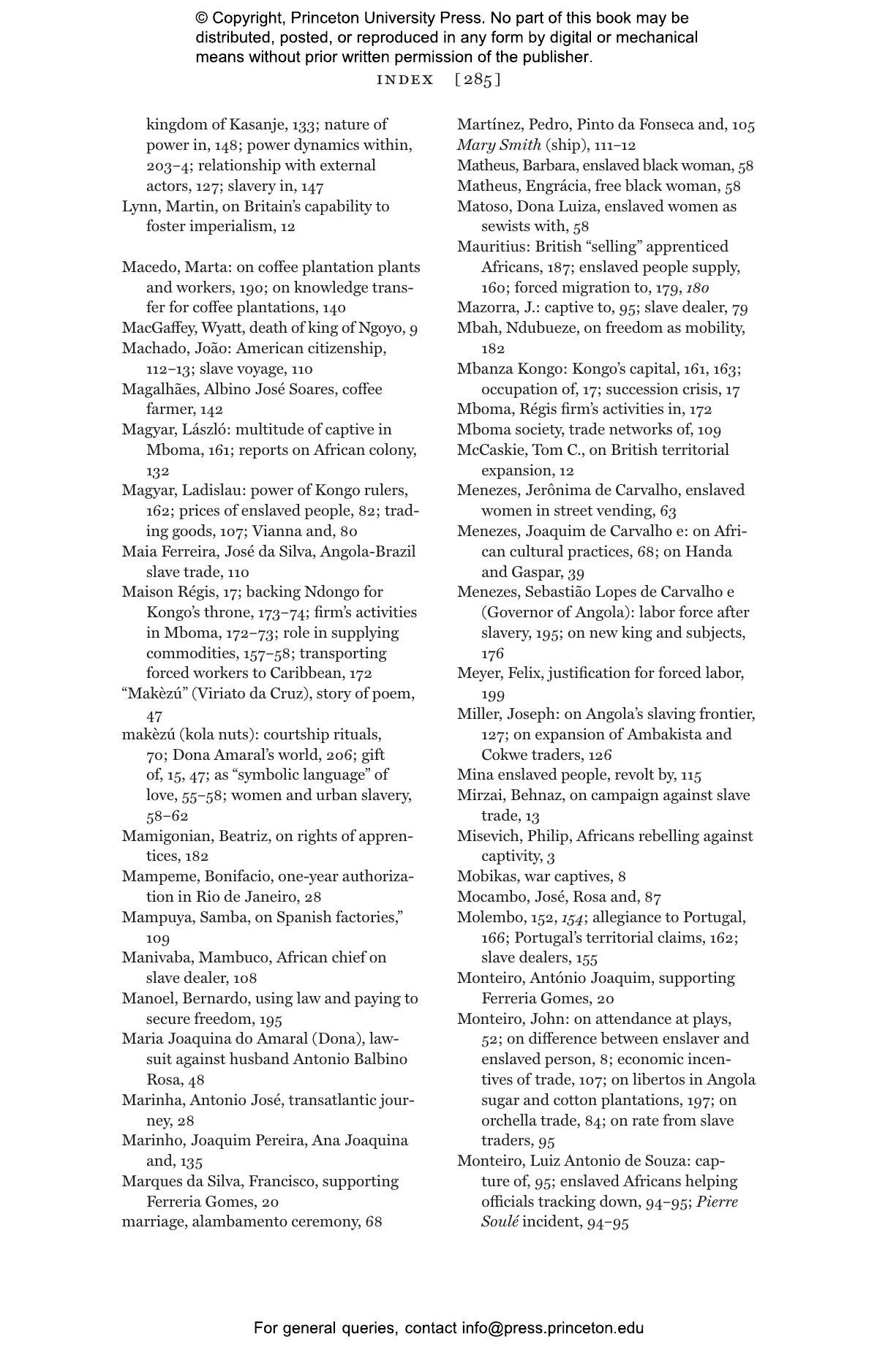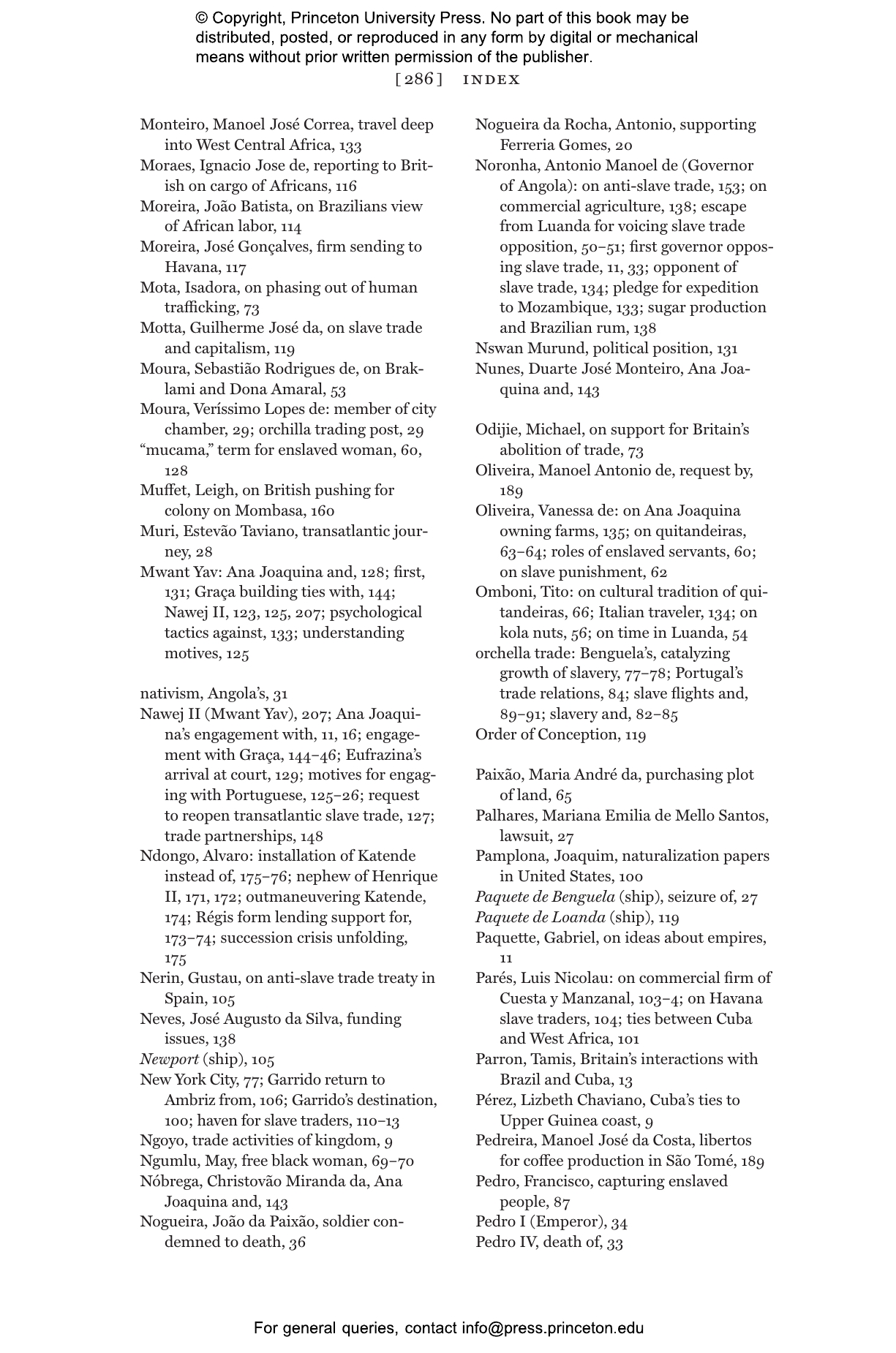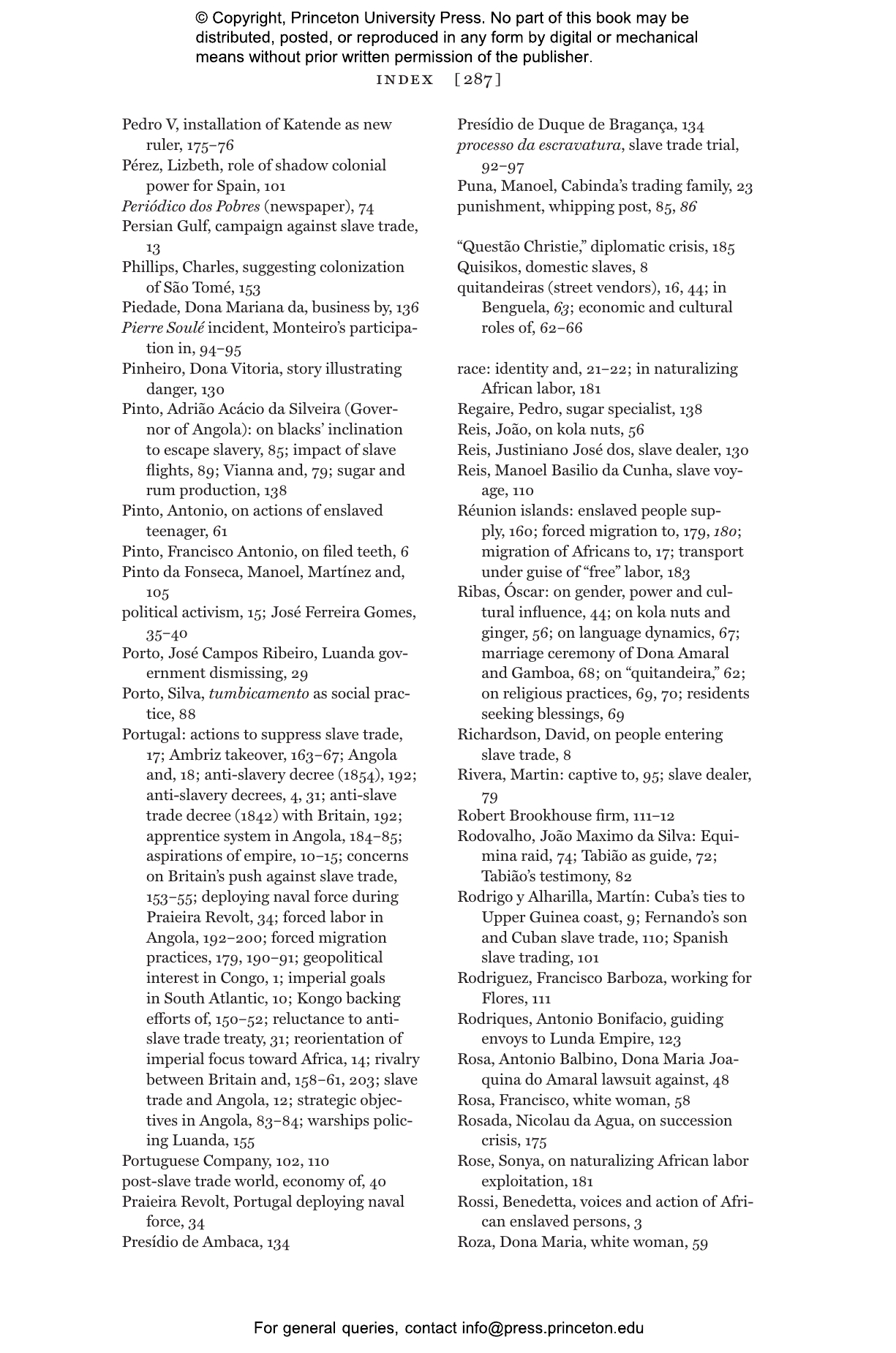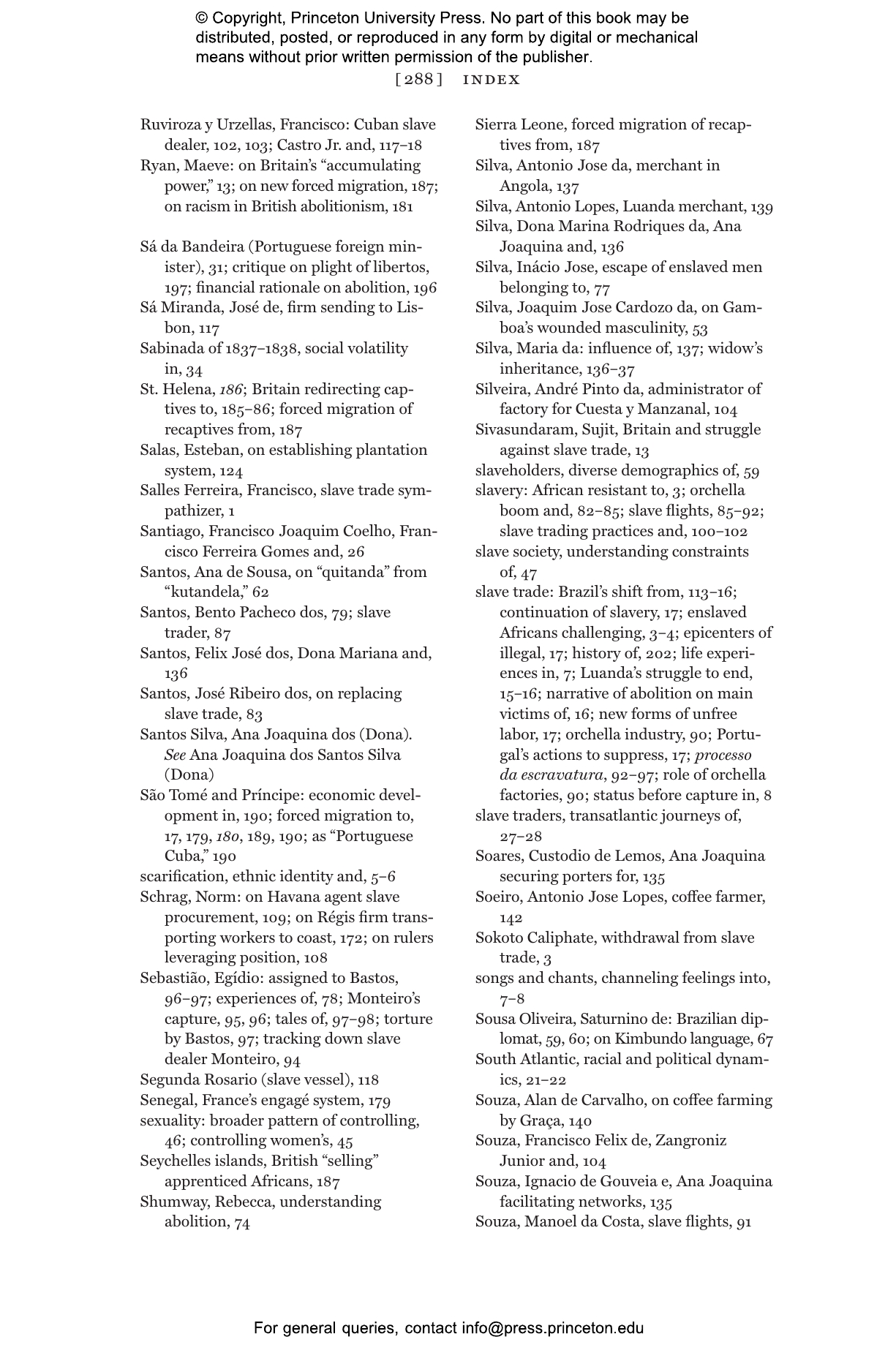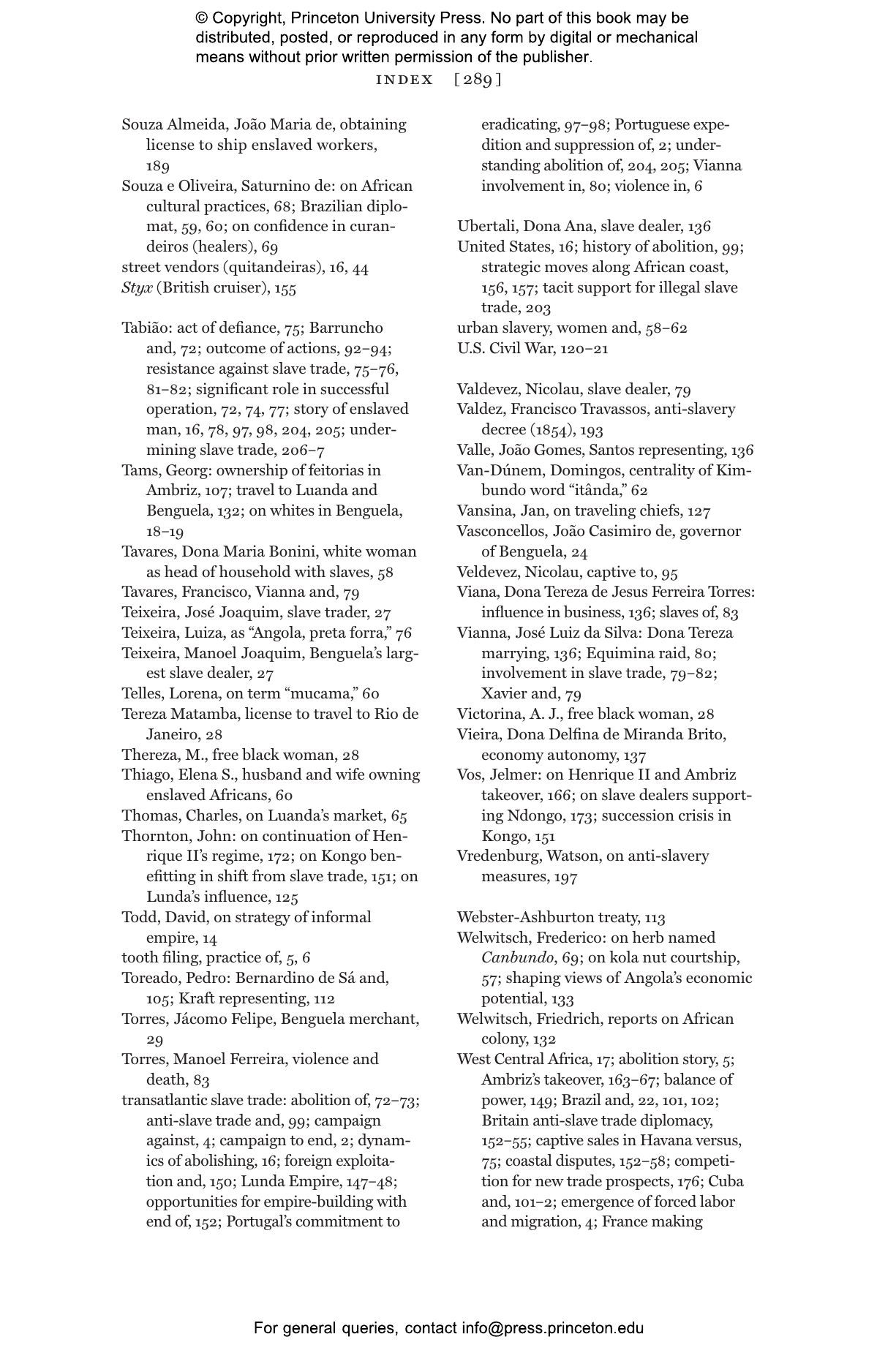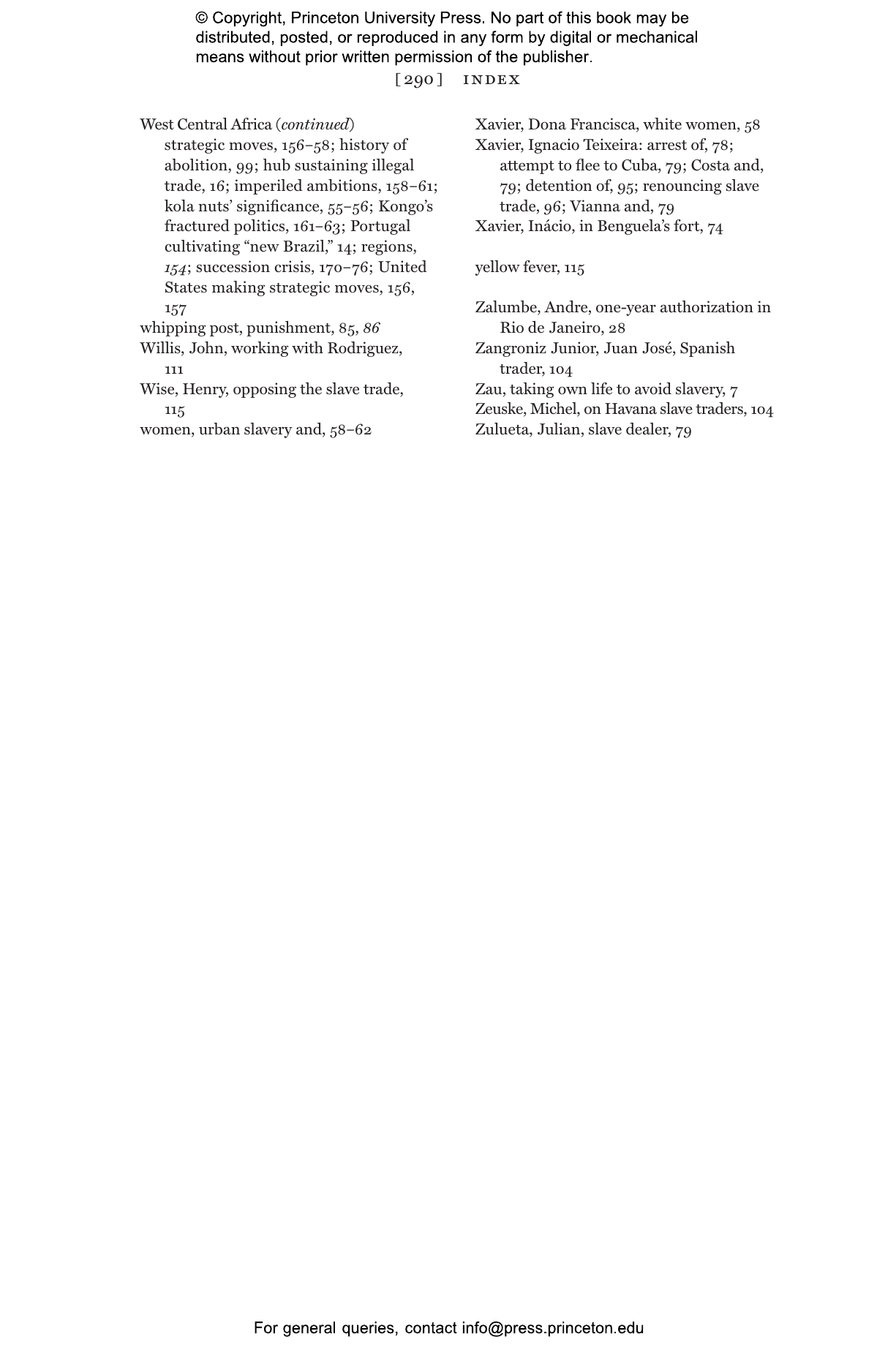In Worlds of Unfreedom, Roquinaldo Ferreira recasts West Central Africa as a key battleground in the struggle to abolish the transatlantic slave trade between the 1830s and the 1860s. Ferreira foregrounds the experiences and agency of enslaved Africans, challenging Eurocentric narratives that marginalize African participation in abolition efforts. Drawing on extensive archival research across multiple continents, he shows how enslaved people actively resisted the oppressive systems that sought to commodify their lives. Doing so, he integrates microhistorical analysis with broader world history, exploring individual trajectories to unravel complex global phenomena. Worlds of Unfreedom bridges a crucial gap by connecting Atlantic and Indian Ocean histories, revealing how abolitionist measures often camouflaged new forms of labor exploitation and forced migration under emerging colonial regimes.
Ferreira’s analysis spans the globe, from Luanda, the kingdom of Kongo, and the Lunda Empire to Havana, Rio de Janeiro, New York City, and Réunion Island. He examines the South Atlantic as a space where politics and race-making were deeply intertwined, with ideas and identities crossing and recrossing the ocean. He considers Portugal’s strategic use of abolition efforts for territorial expansion, its impact on the kingdom of Kongo, and the intricate networks linking West Central Africa to Cuba and Brazil. With Worlds of Unfreedom, Ferreira shows how multiple actors, including Africans, built anti–slave trade politics from the margins. His nuanced, Africa-centered perspective on abolition highlights the resilience and contributions of enslaved Africans in shaping the course of history.
Roquinaldo Ferreira is Henry Charles Lea Professor of History at the University of Pennsylvania. He is author of Cross-Cultural Exchange in the Atlantic World: Angola and Brazil during the Era of the Slave Trade.
13448
“Africans take center stage in this fresh and original masterwork. Ferreira builds on an astonishing research effort that took him to archives in half a dozen countries, telling fine-grained stories about individuals navigating the vast and turbulent currents of world history. His argument bucks the tendency to emphasize the initiative of European powers in the making of slave trade abolition, convincingly revising long-held assumptions about pivotal globe-spanning transformations.”—Vincent Brown, author of Tacky’s Revolt: The Story of an Atlantic Slave War
“This transformative study looks at the abolition of the slave trade through the actions of enslaved Africans, protagonists in a global process marked by changing geopolitical realities. It is also a story about the adaptability of slave traders, of their ability to develop new routes to supply dwindling but profitable markets for enslaved Africans. Based on impressive multinational research, Worlds of Unfreedom places West Central Africa at the center of one of the most important chapters in Atlantic history.”—Alejandro de la Fuente, Harvard University
“Worlds of Unfreedom’s finely crafted chapters bring microhistory and global history into creative conversation to illuminate powerfully the contributions of subaltern women and men in West Central Africa to the final abolition of the Atlantic slave trade. The text casts bright new light on how and why the end of the slave trade in West Central Africa gave rise to a post–slave trade economic order dependent on the expansion of local slavery and other forms of unfree labor. Impressively researched and engagingly written, Worlds of Unfreedom will become an essential text on the history of the Atlantic slave trade and its abolition.”—Kristin Mann, Emory University
“An important addition to this emerging field and an ambitious and wide-ranging study. Perhaps the greatest strength of the book is the author’s remarkable research into local records, research that enables him to explain the conduct of the trade from the Kongo in exquisite detail. The author’s focus on individuals and events, on the microhistory of the trade, makes this book distinctive.”—Randy Sparks, Tulane University


